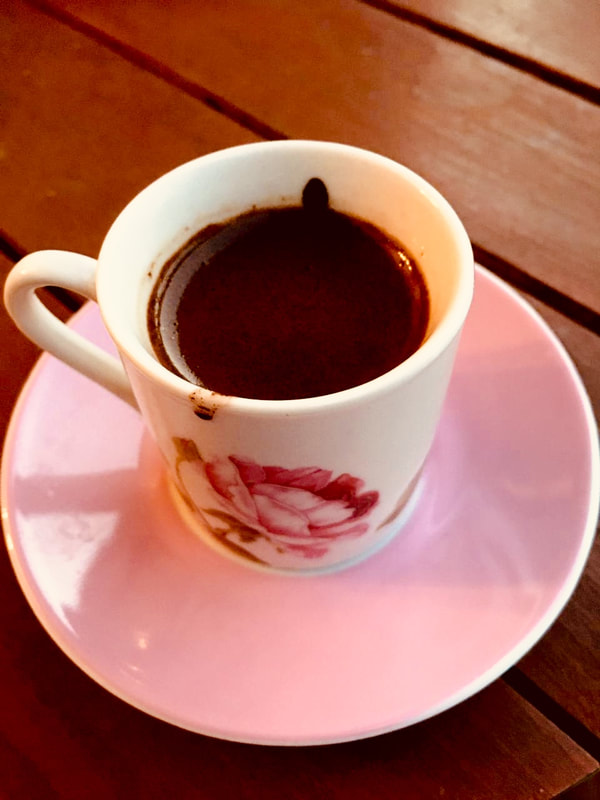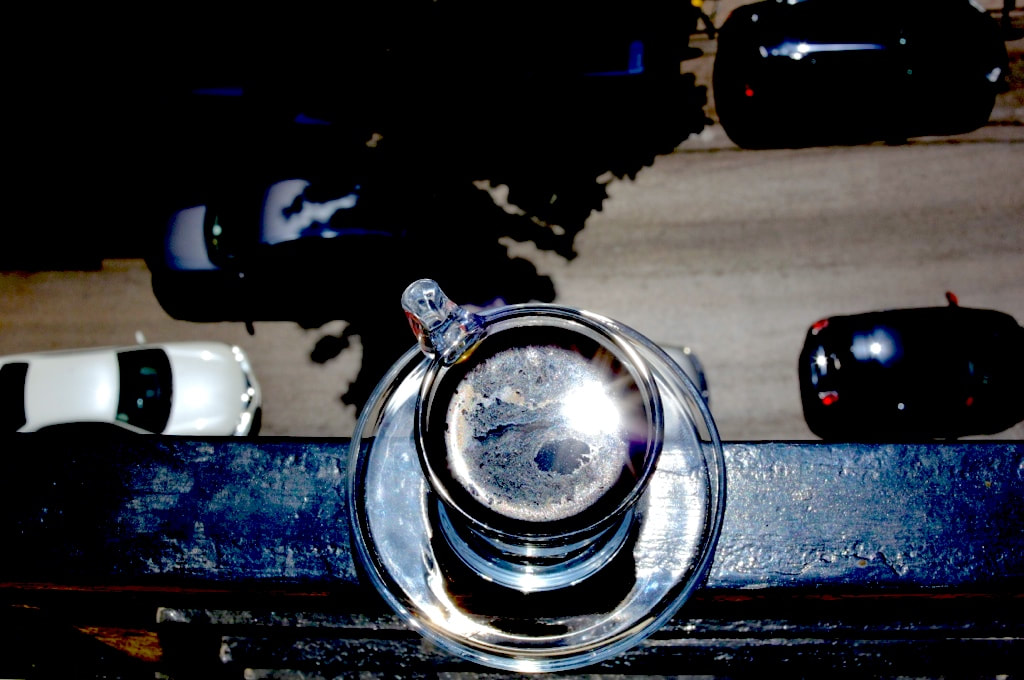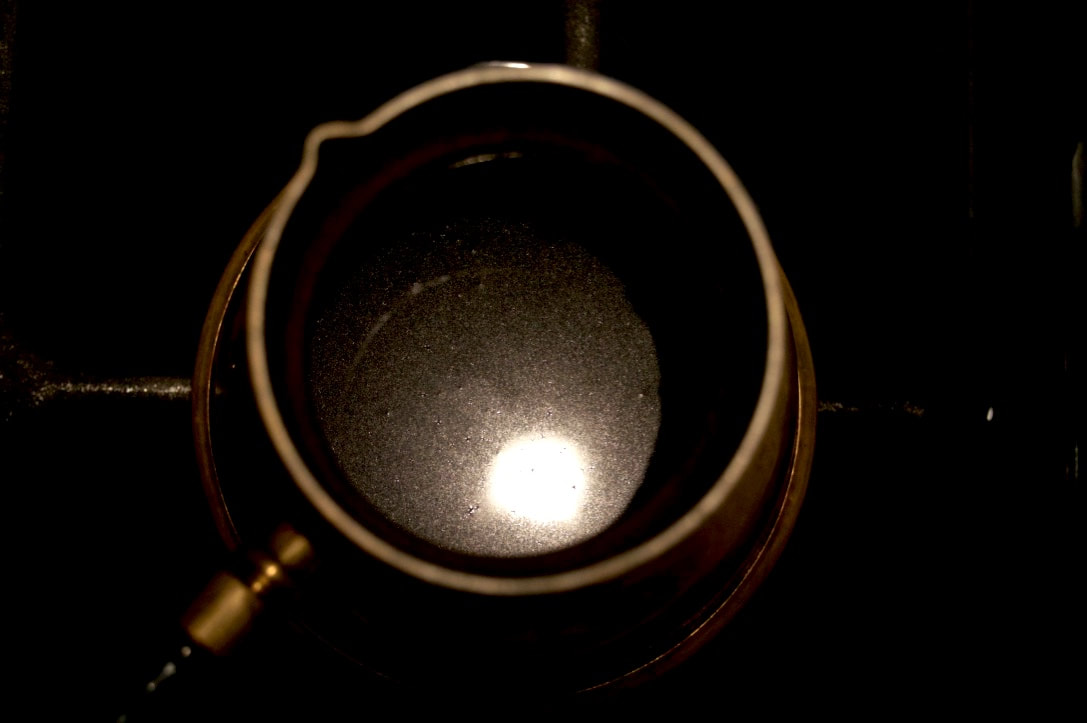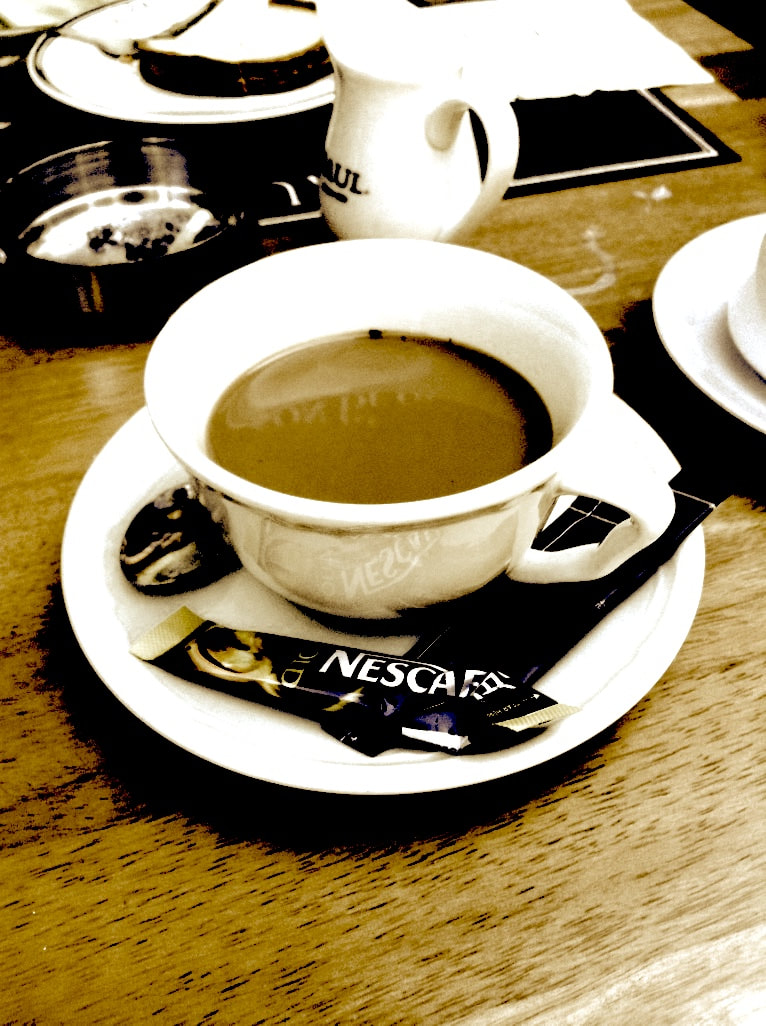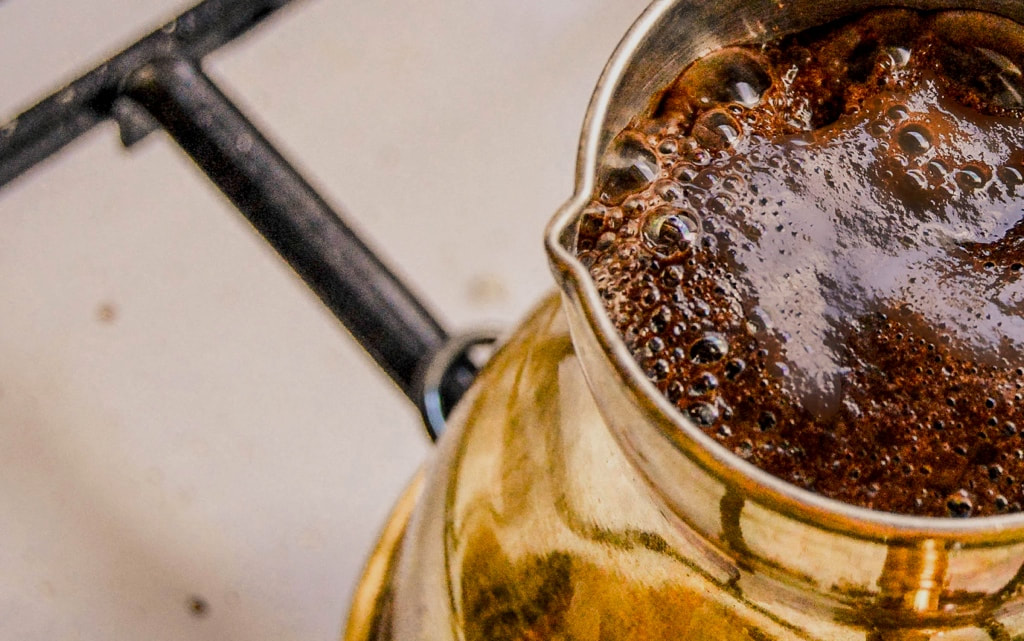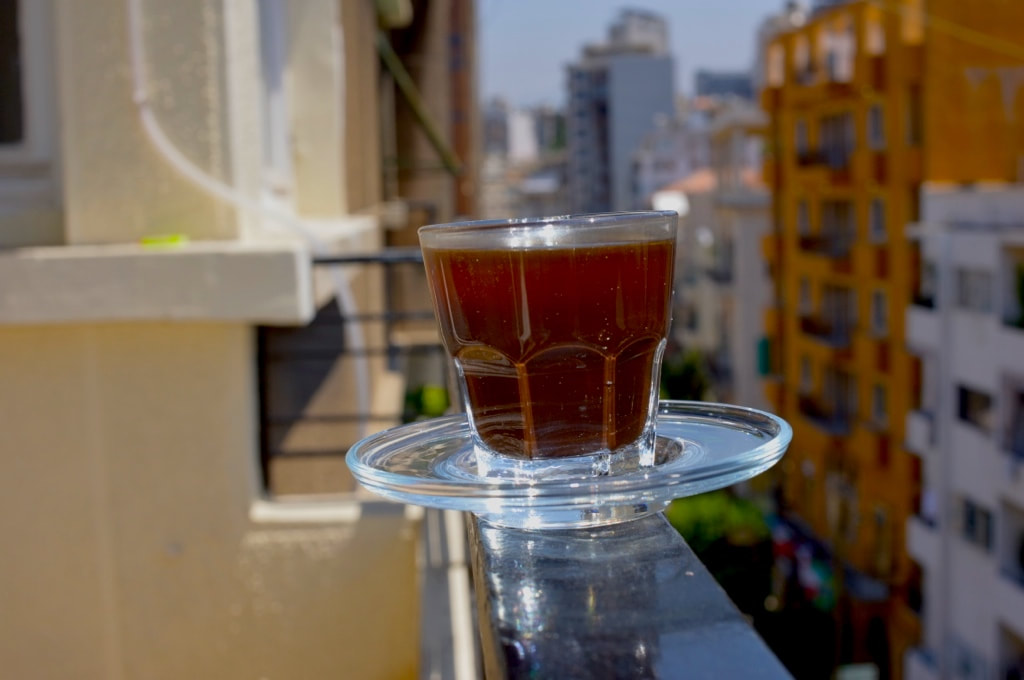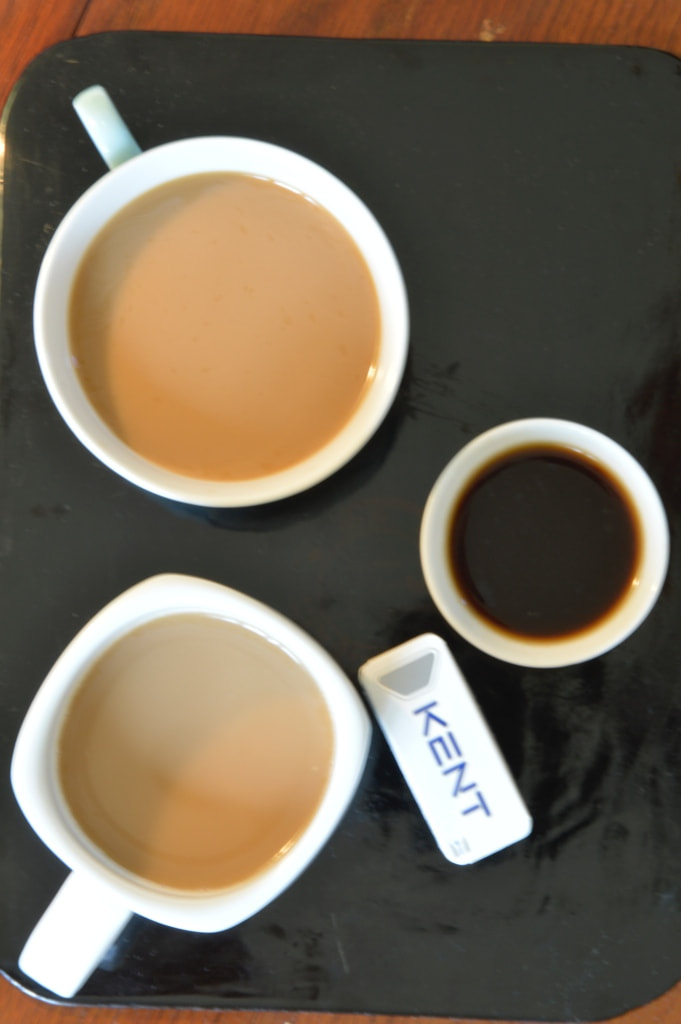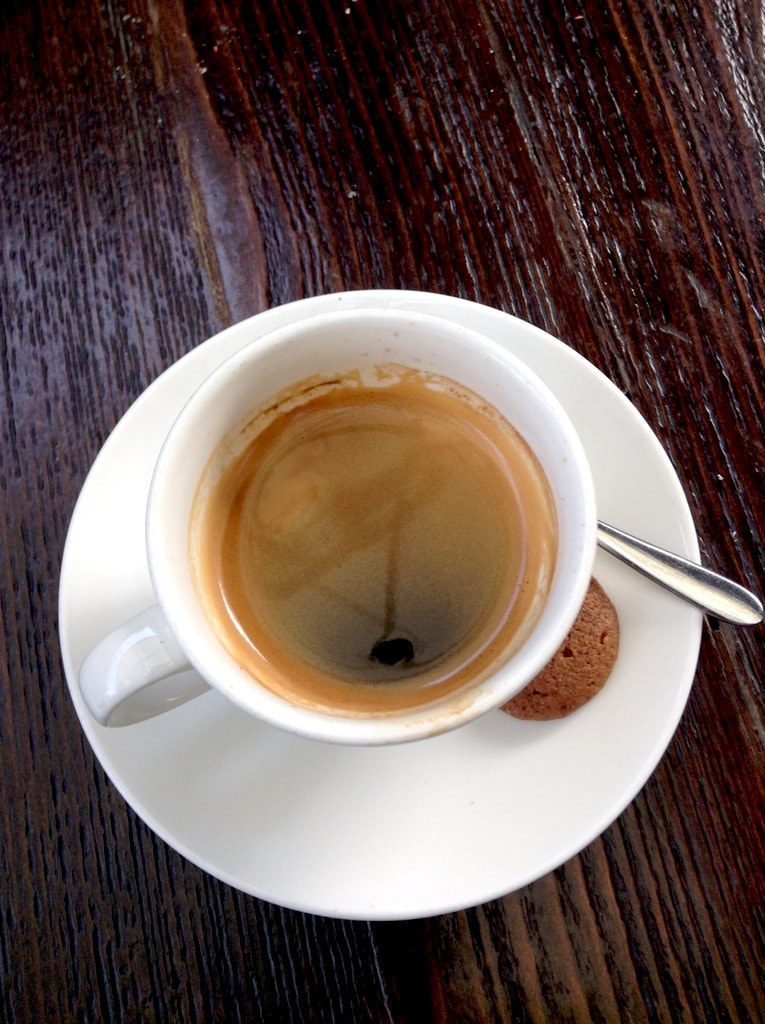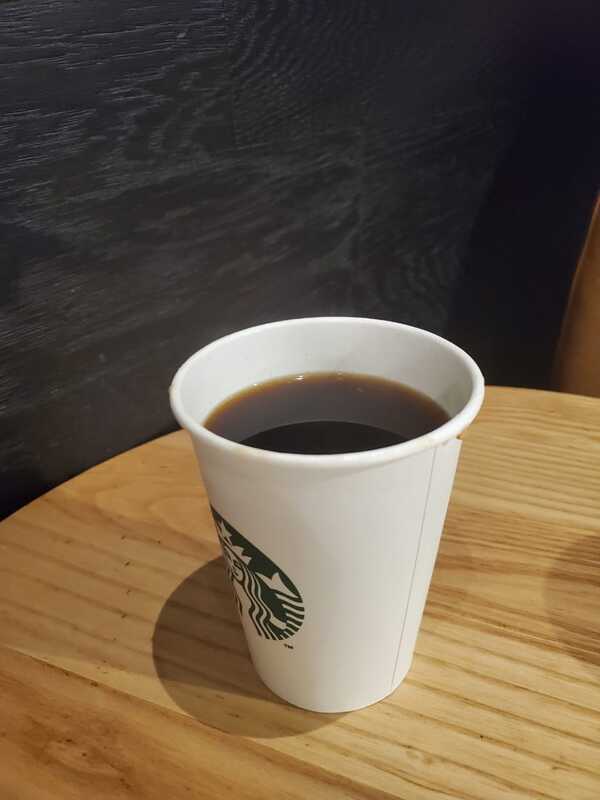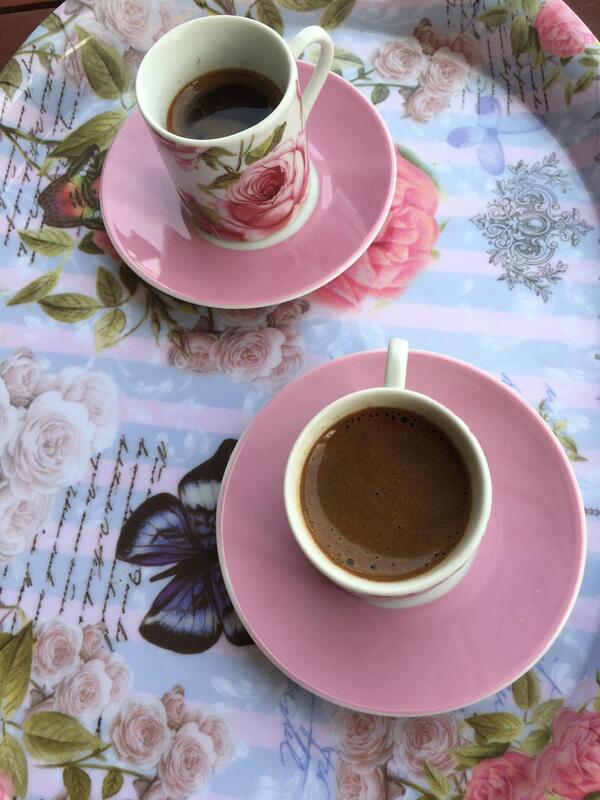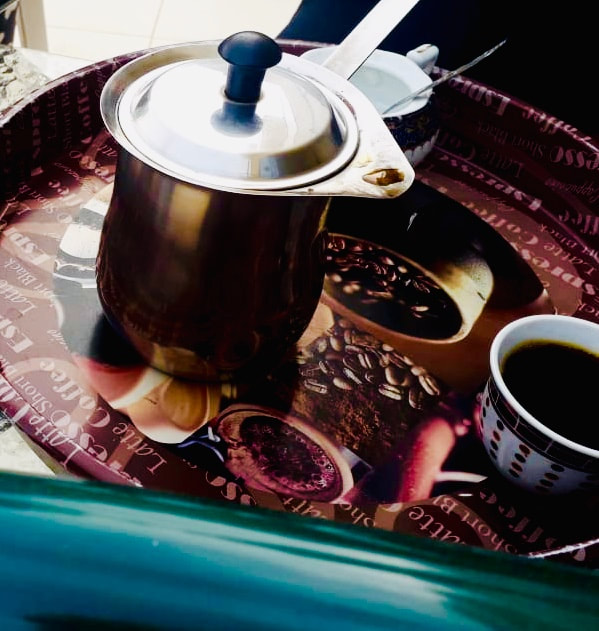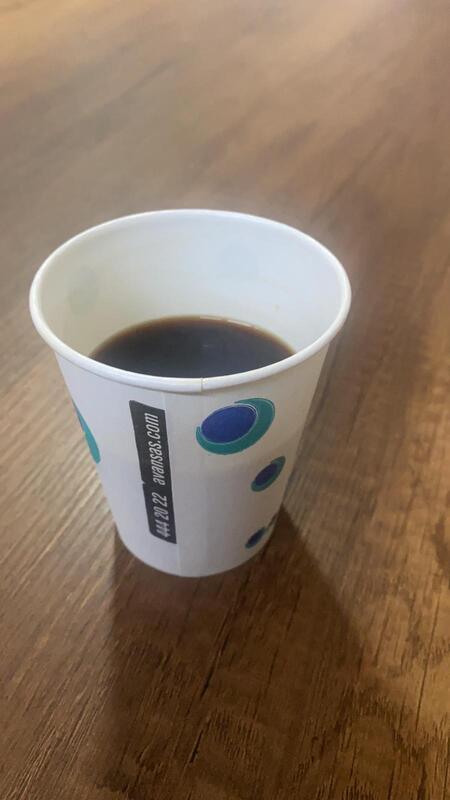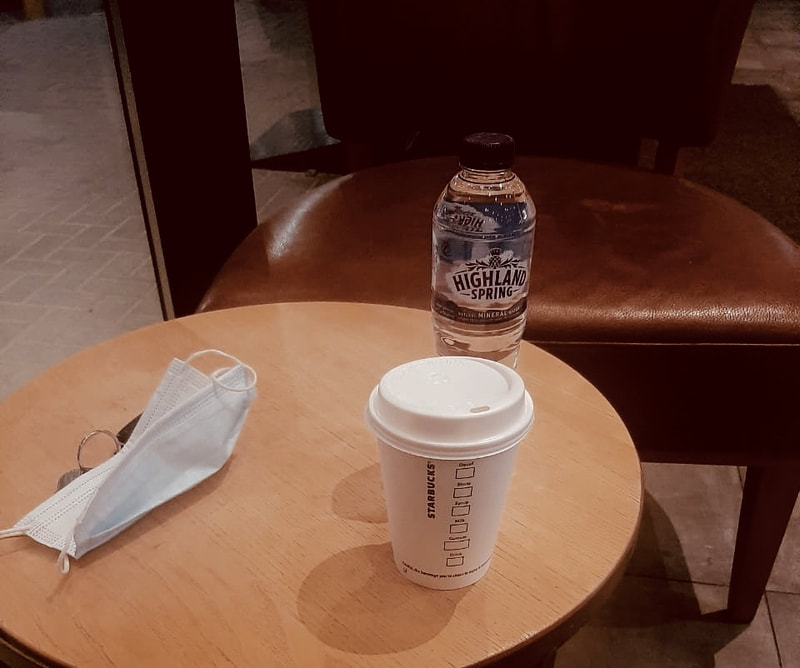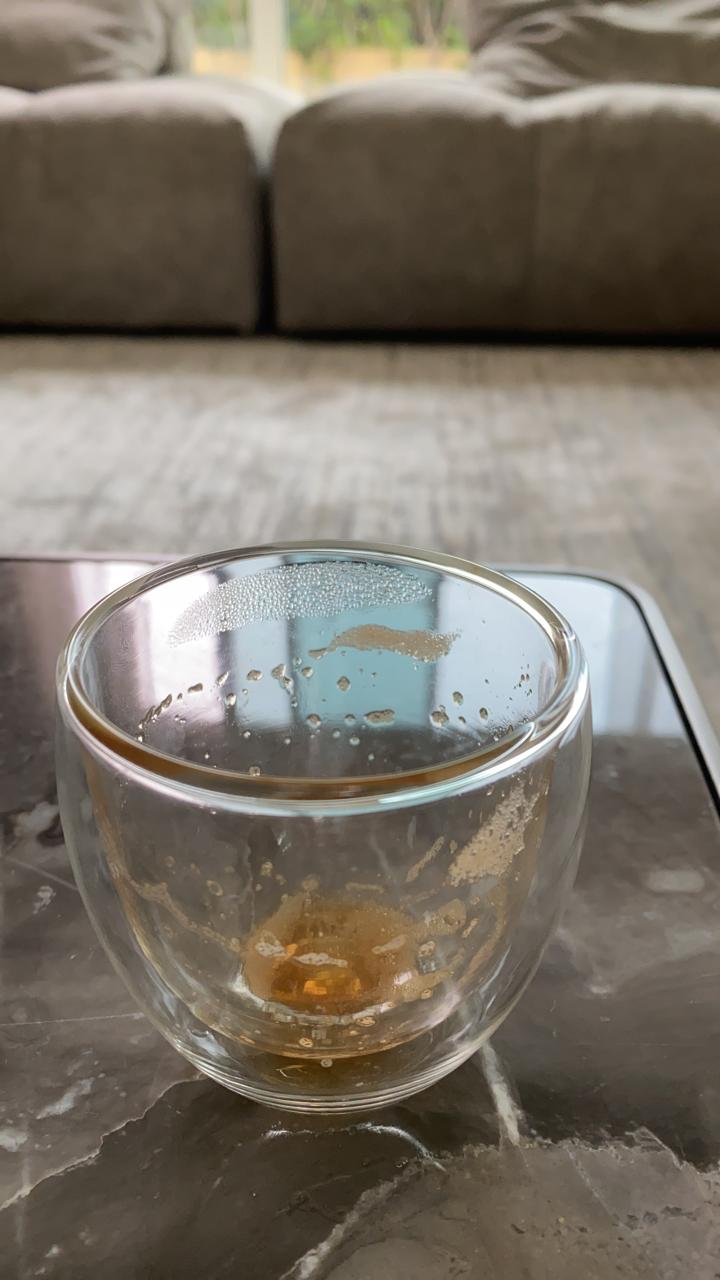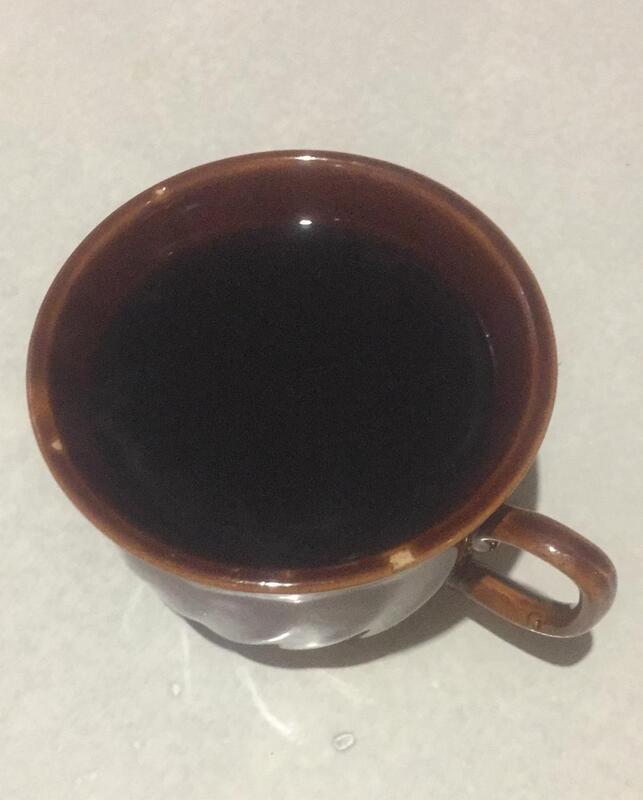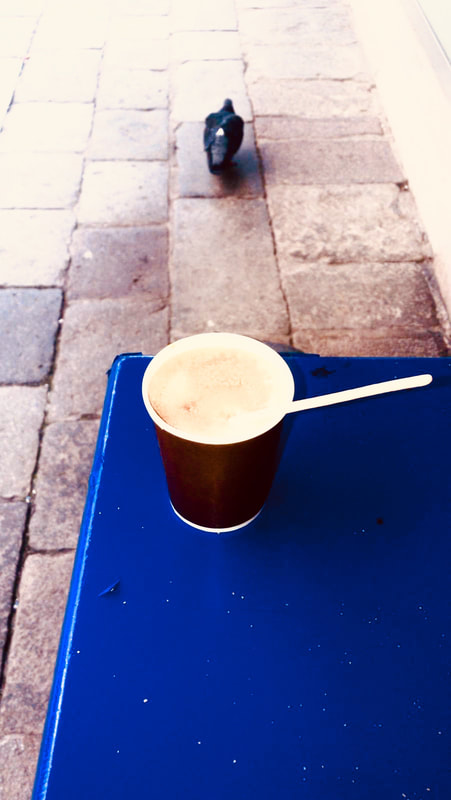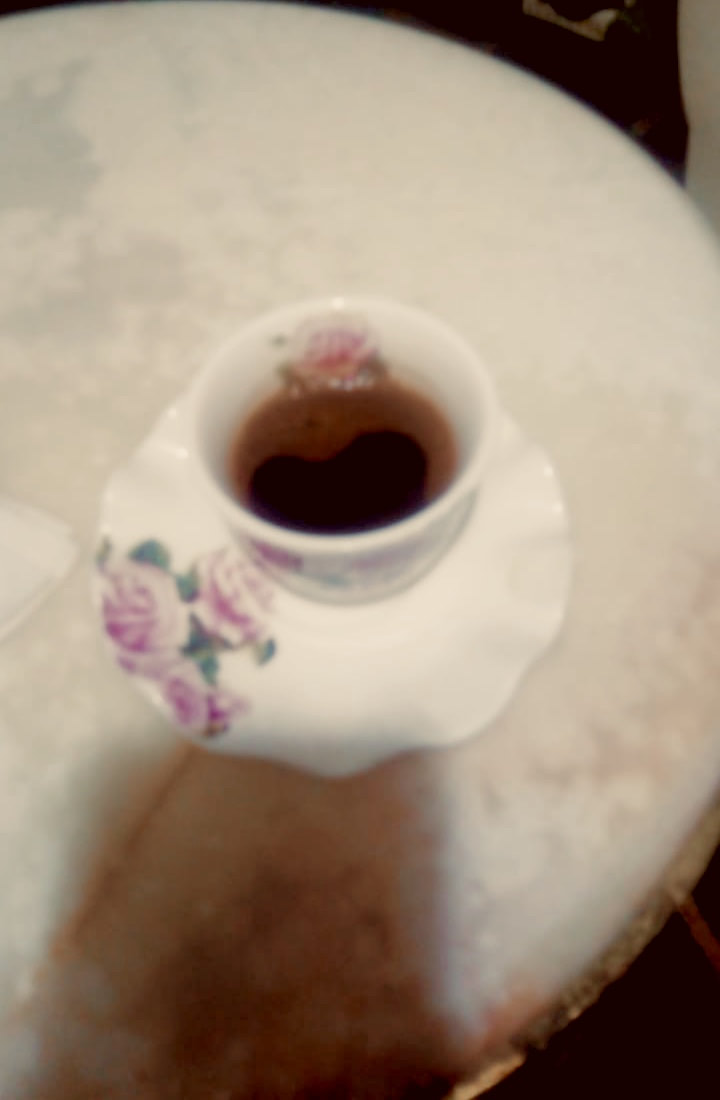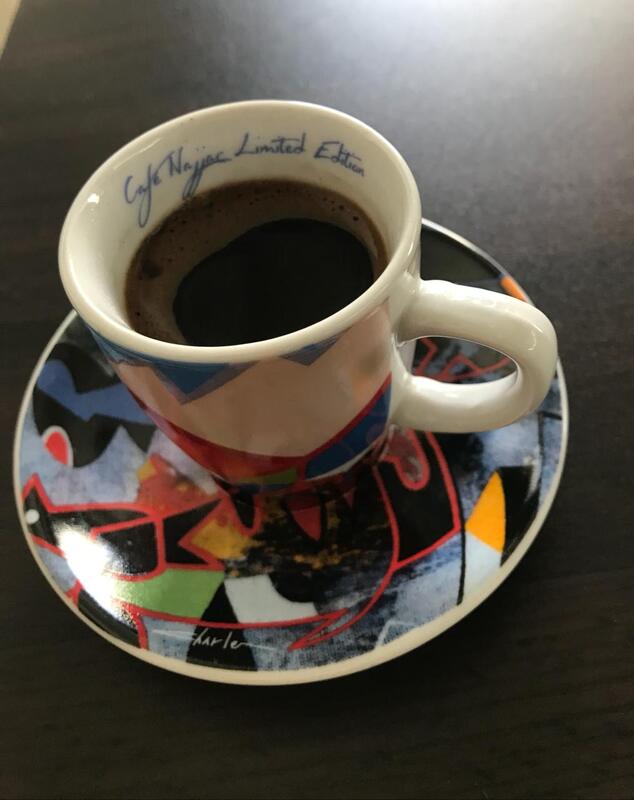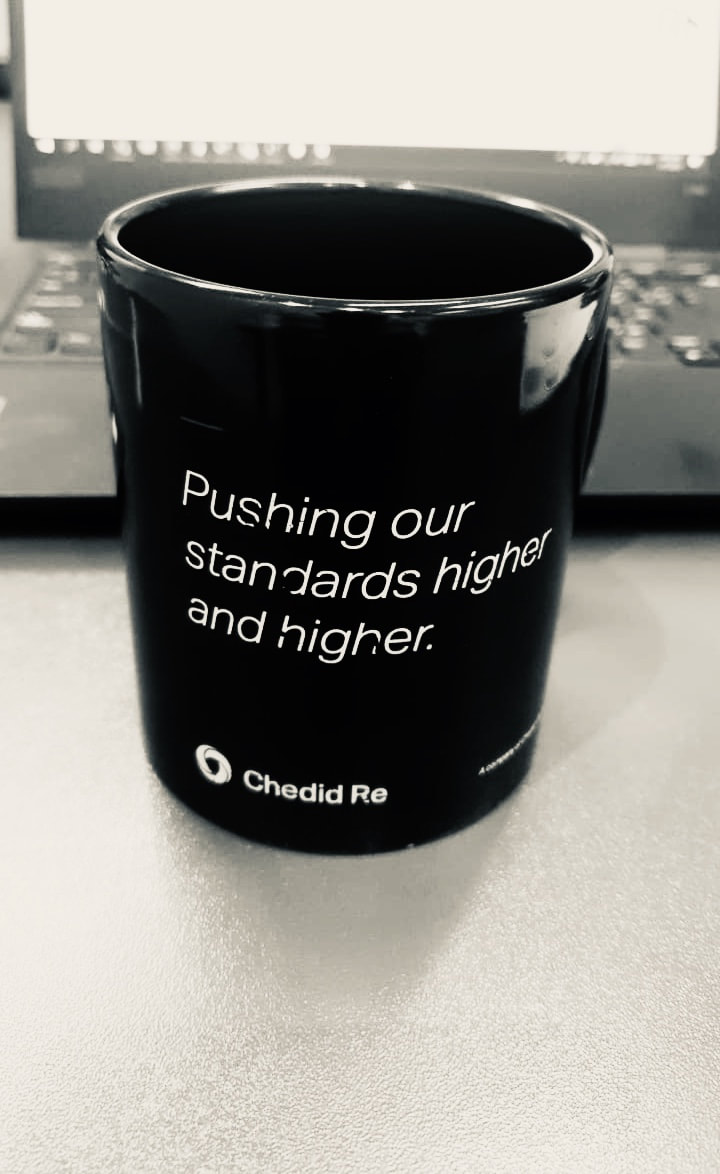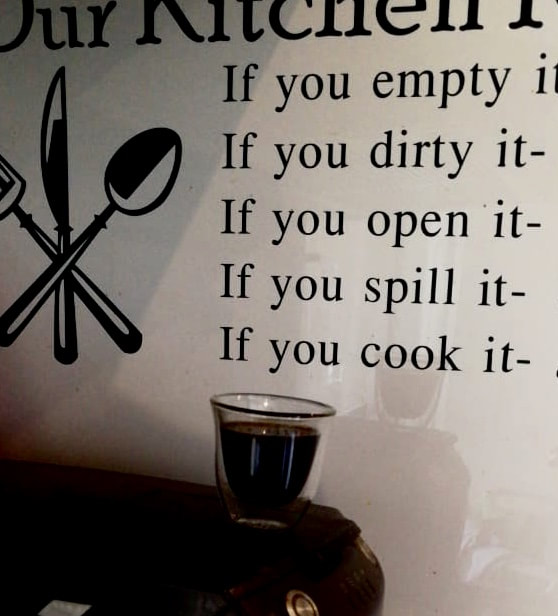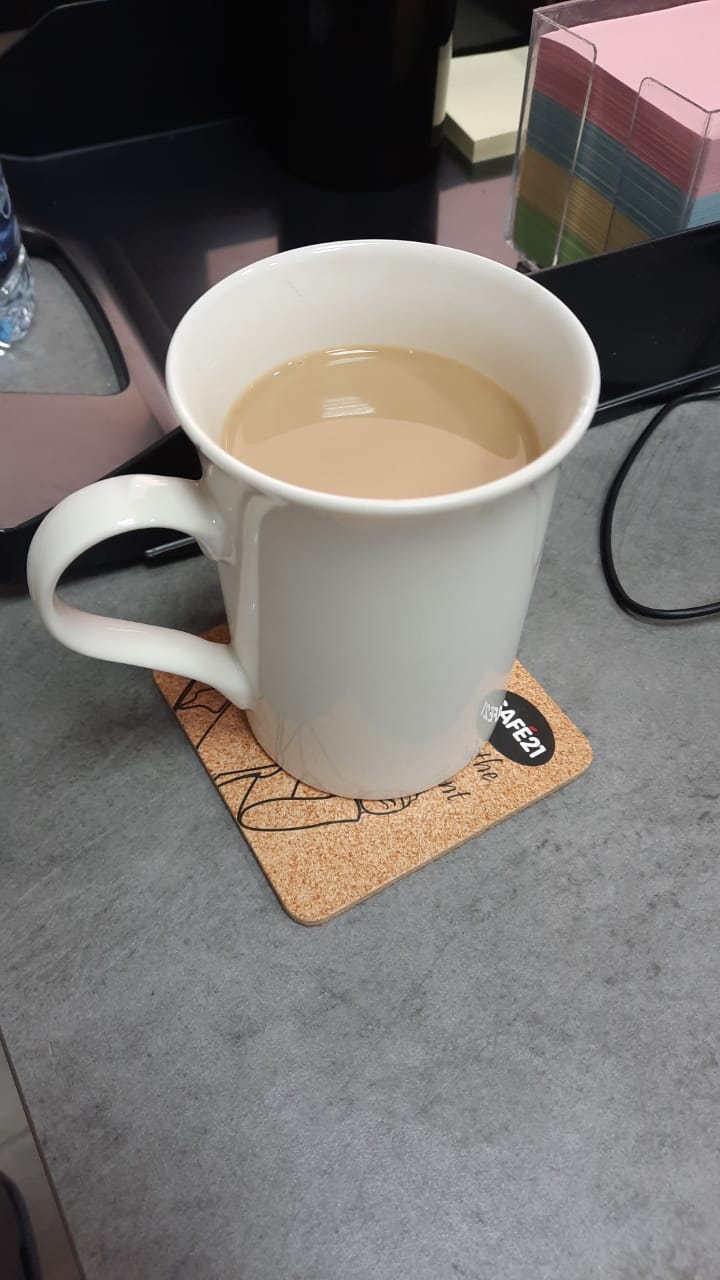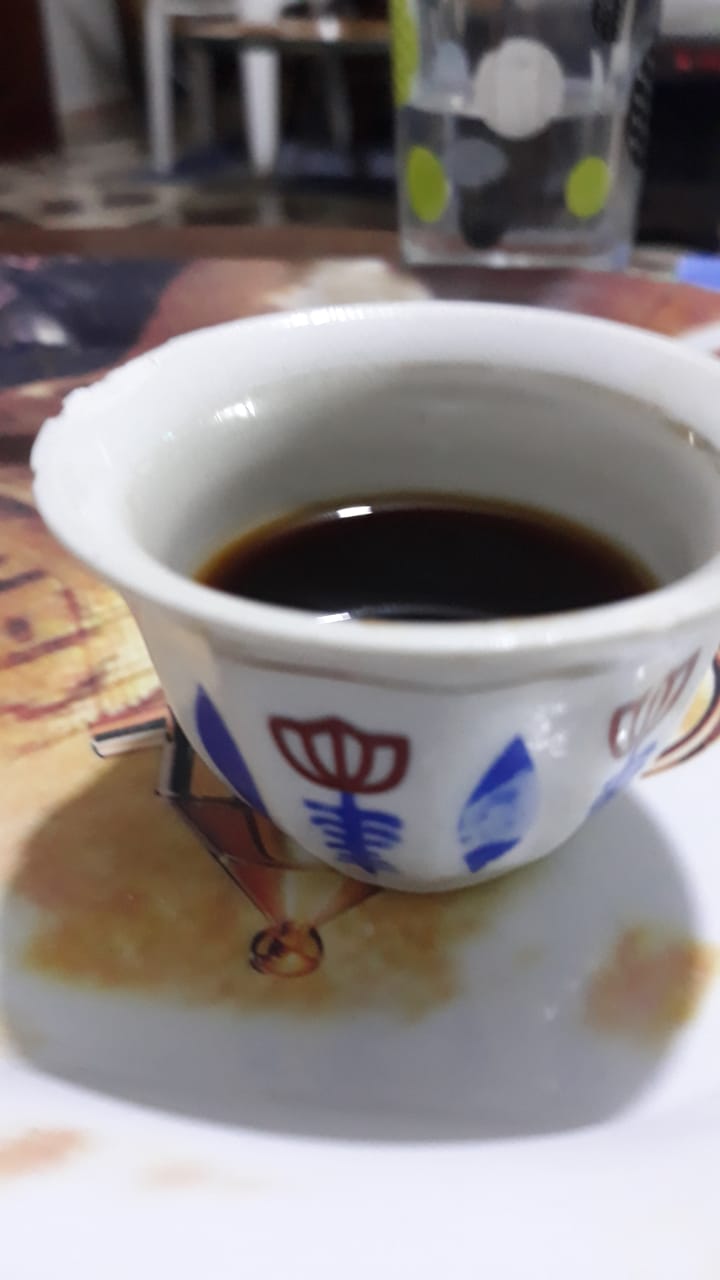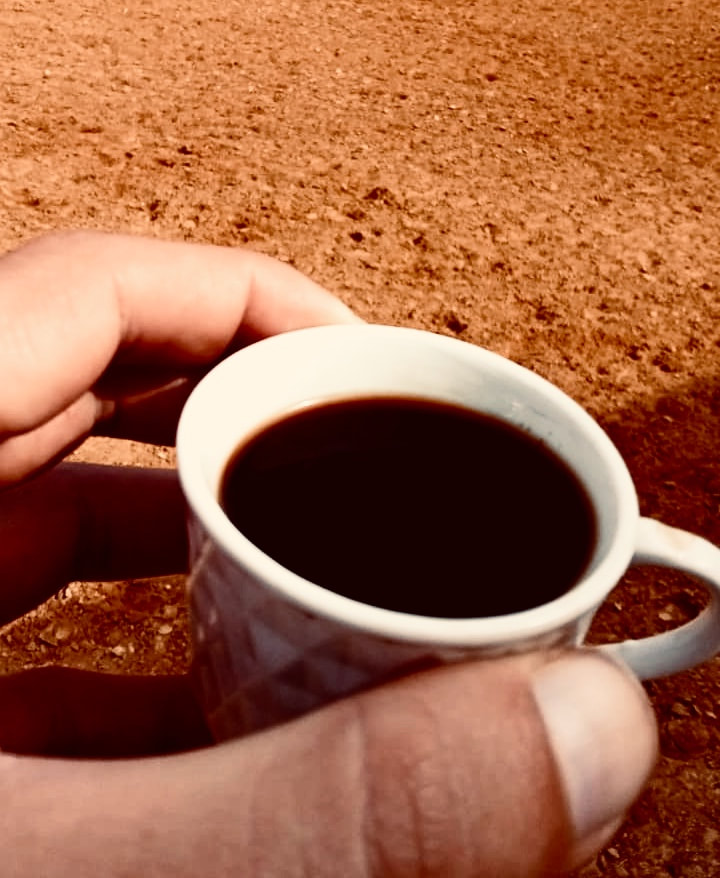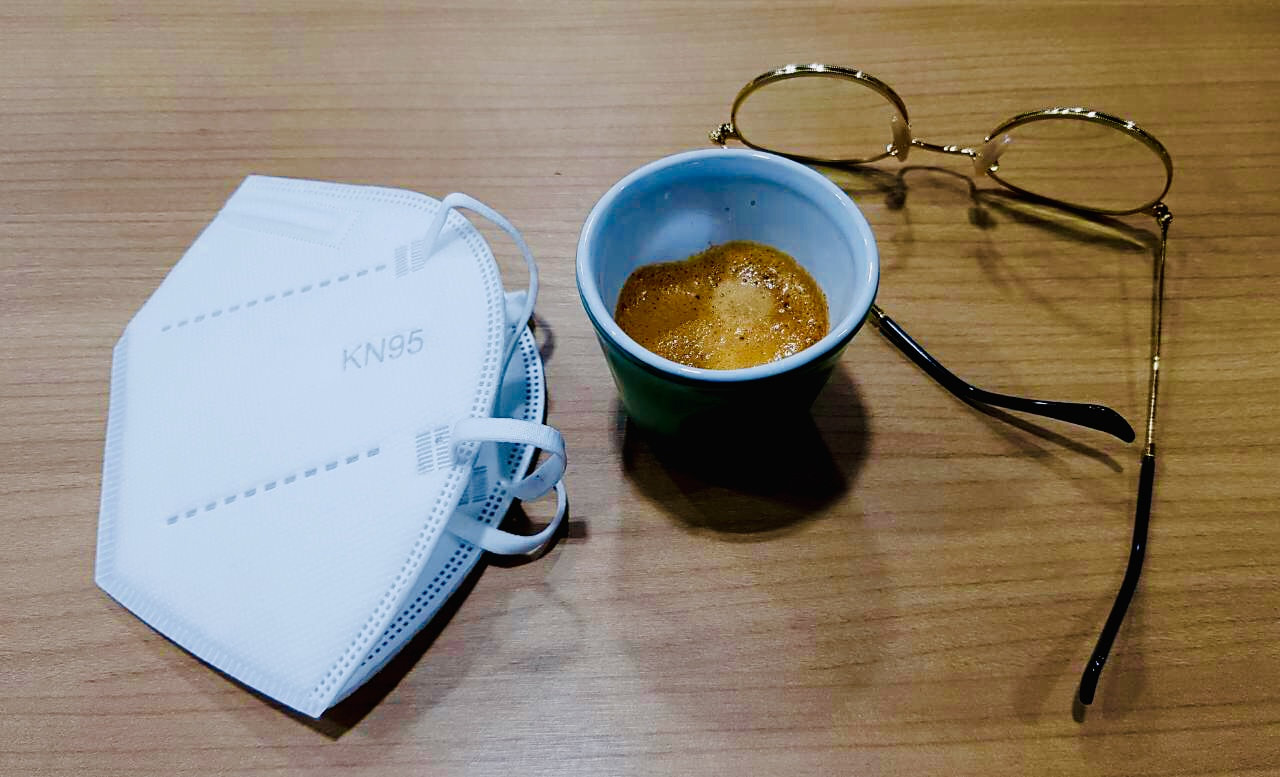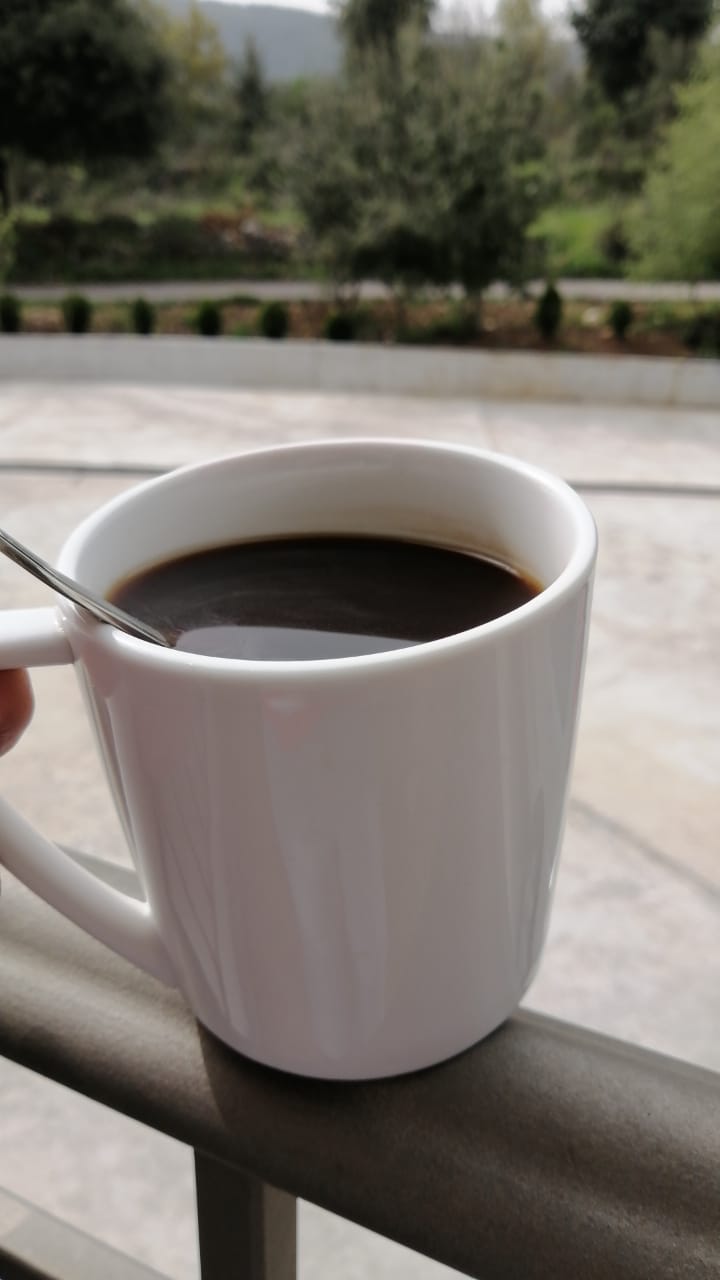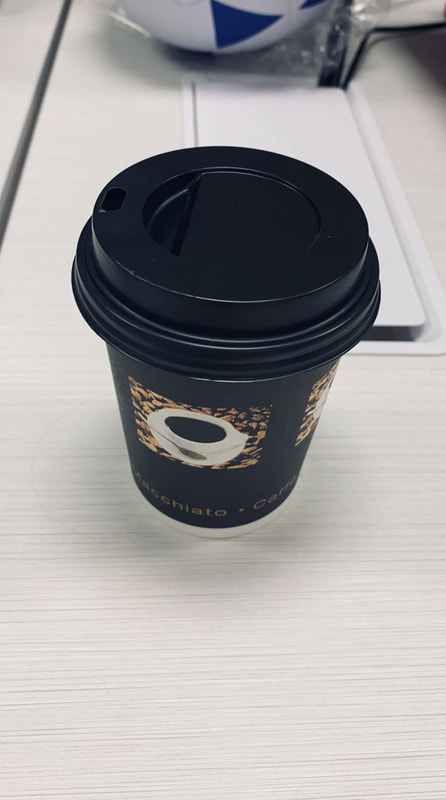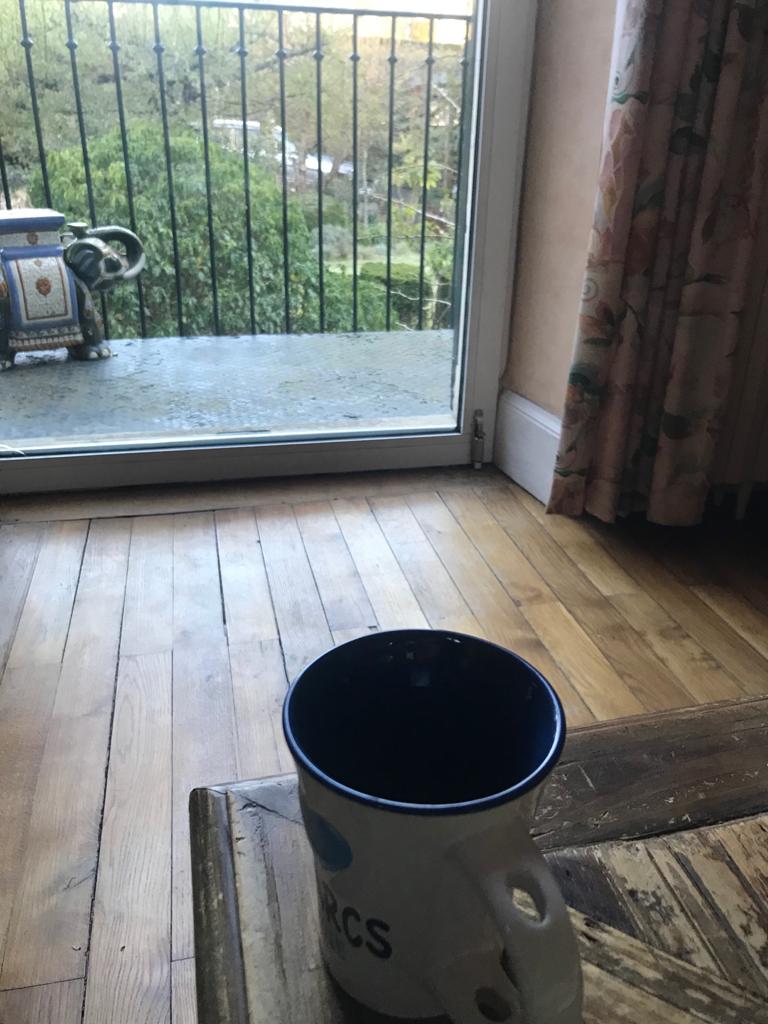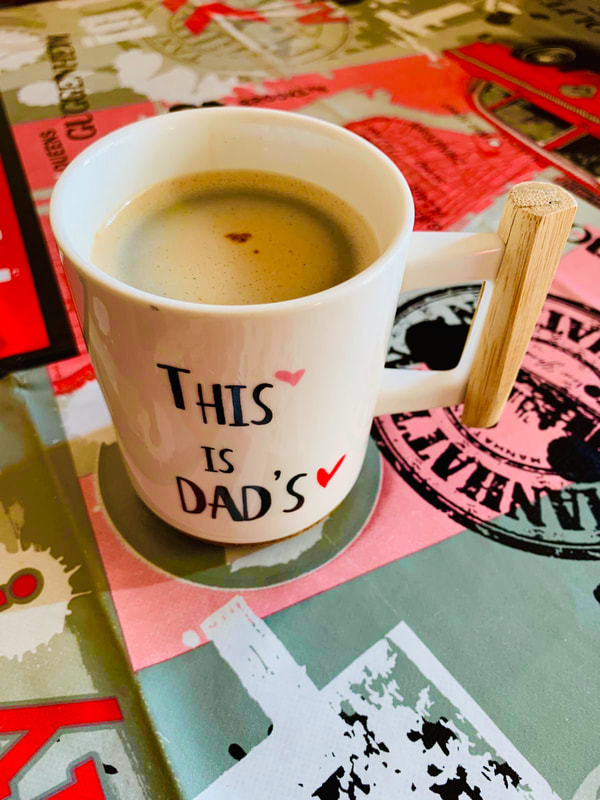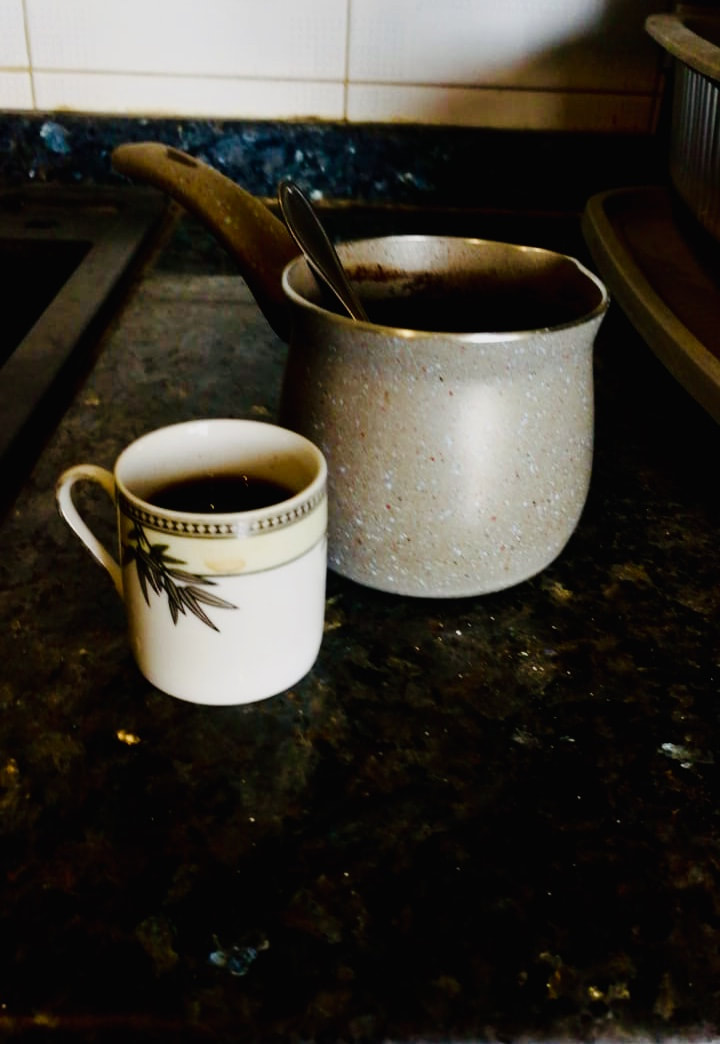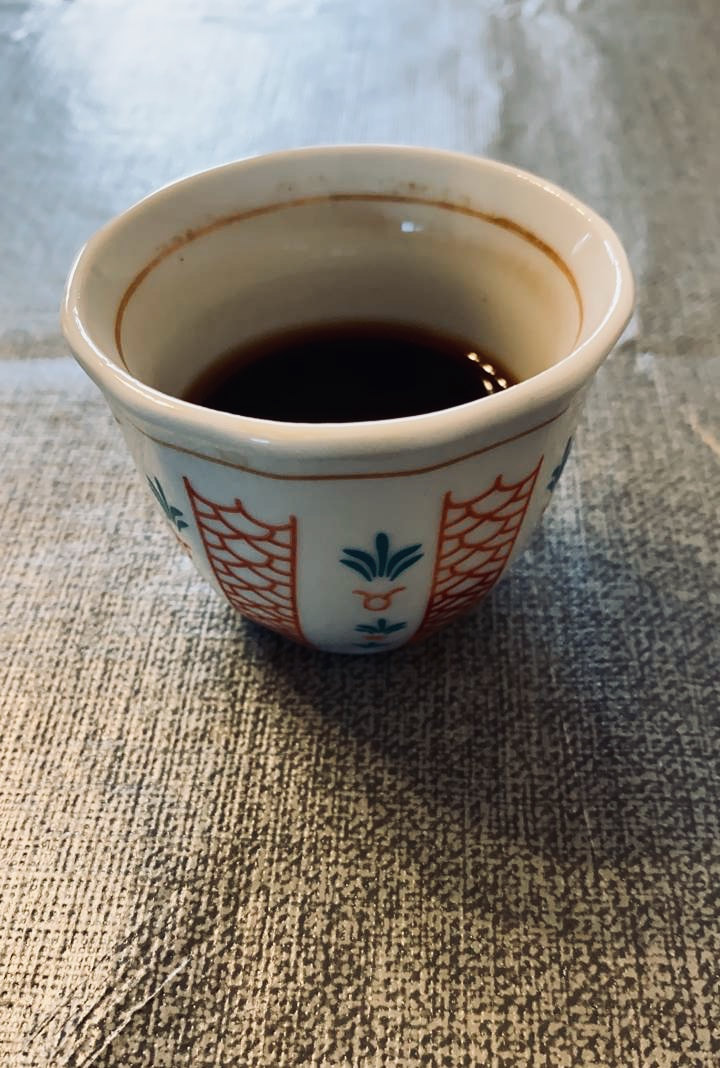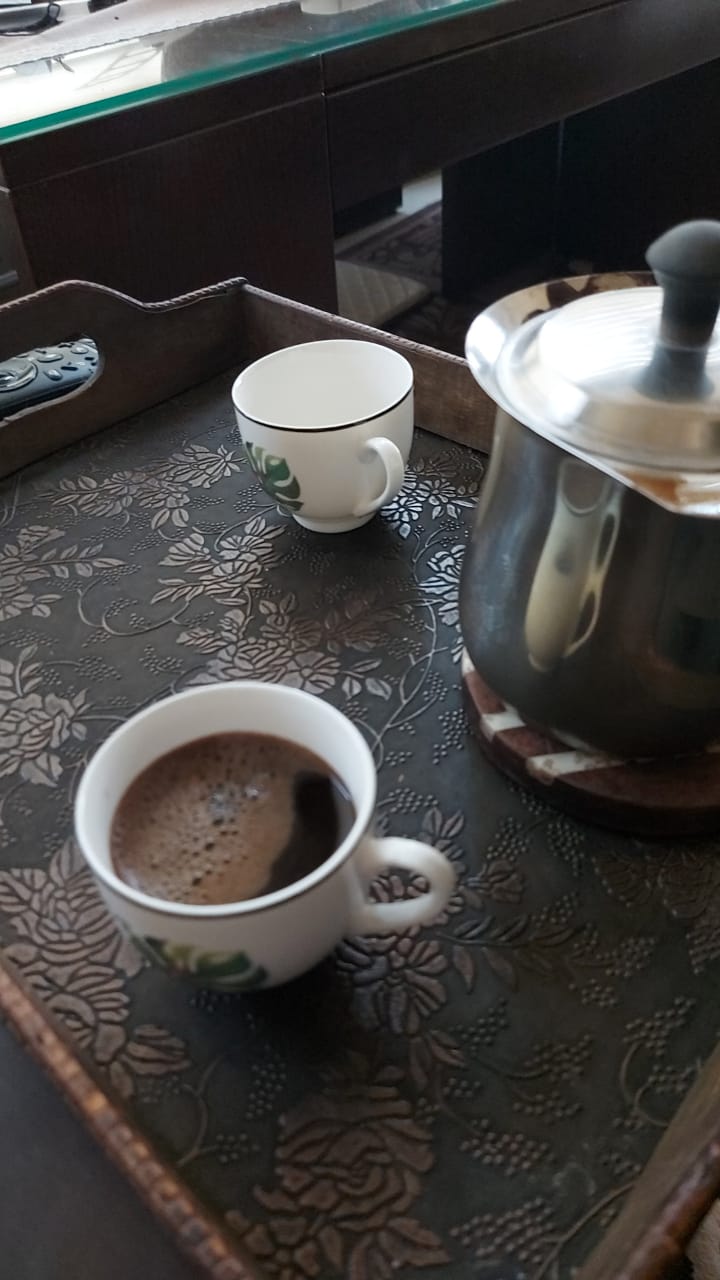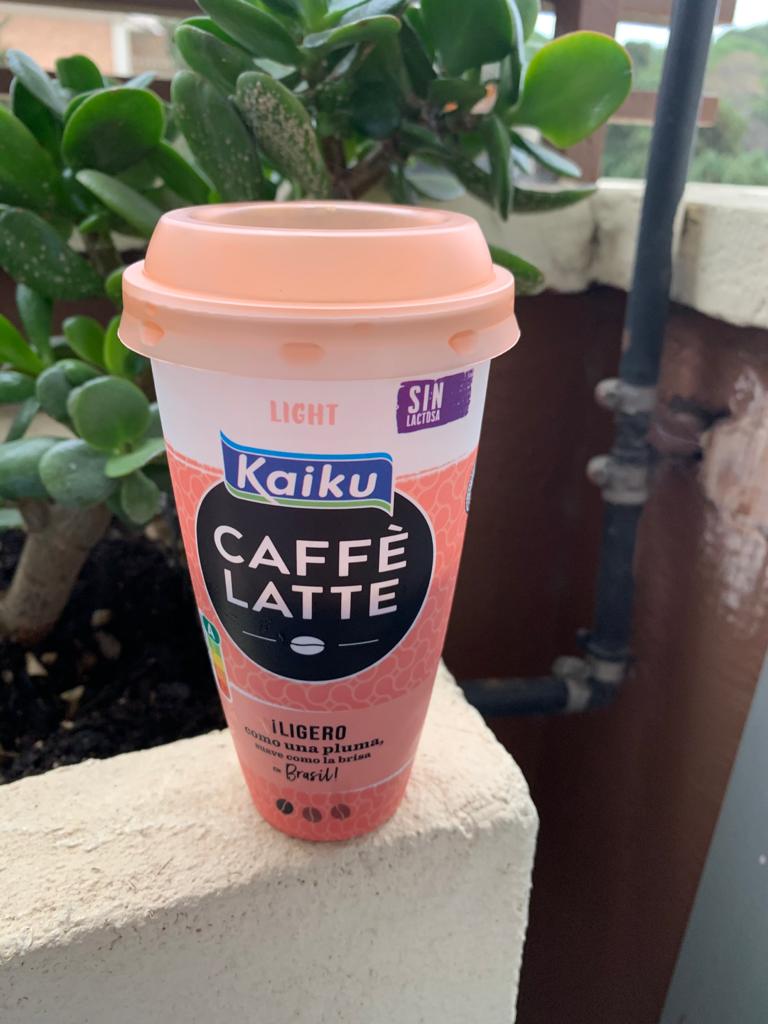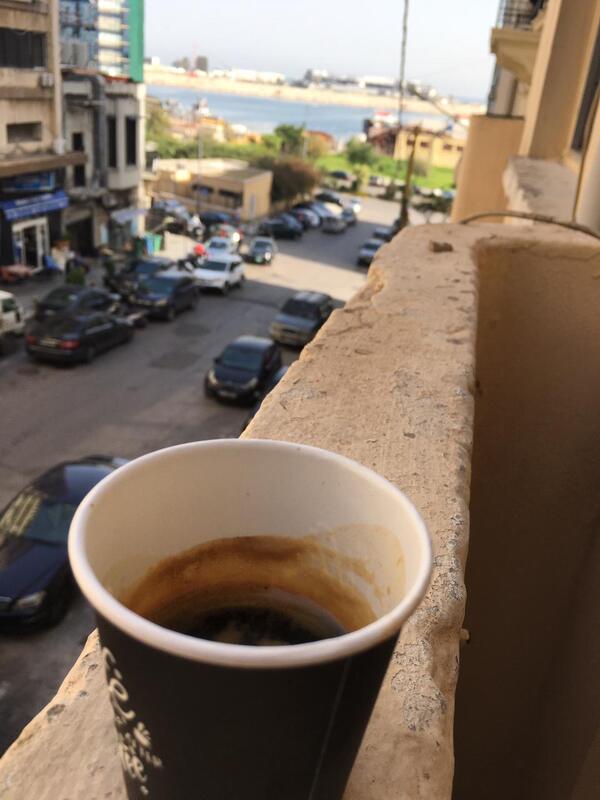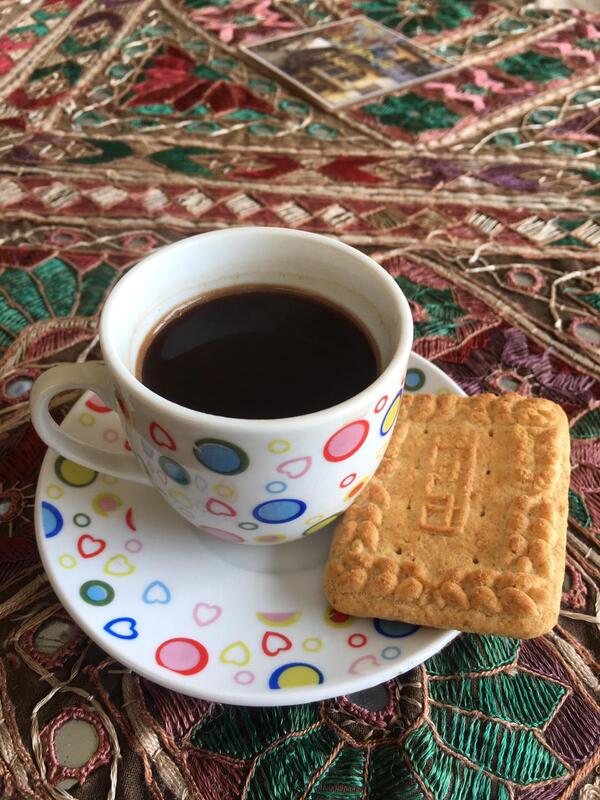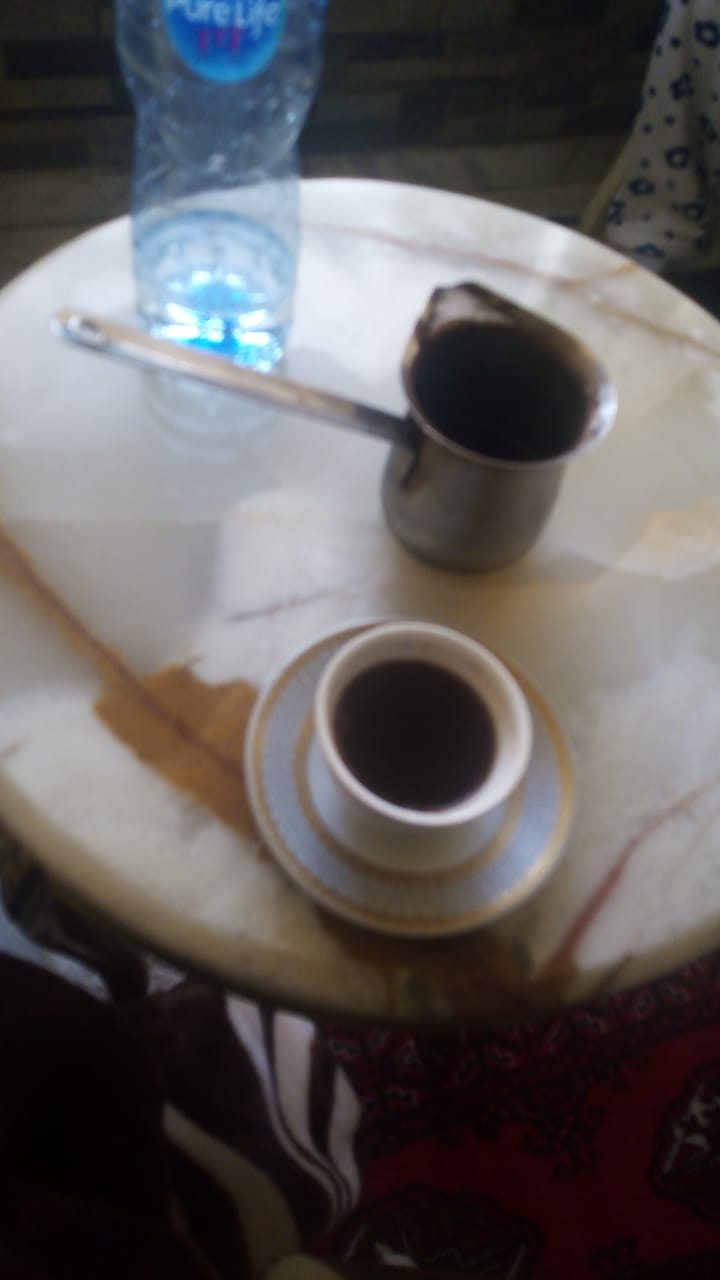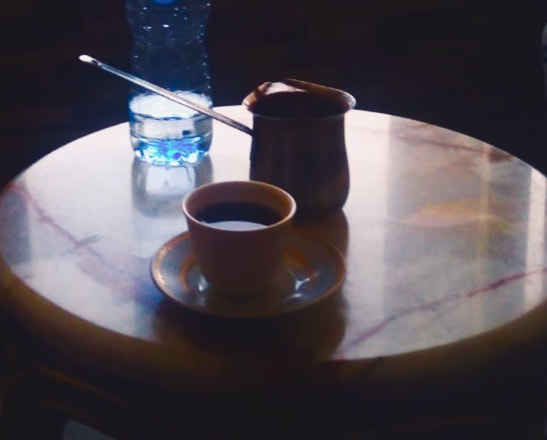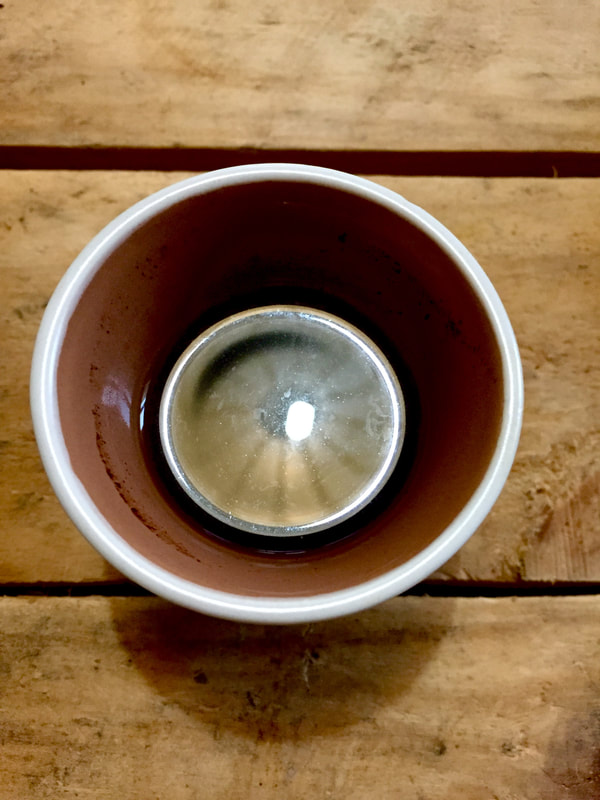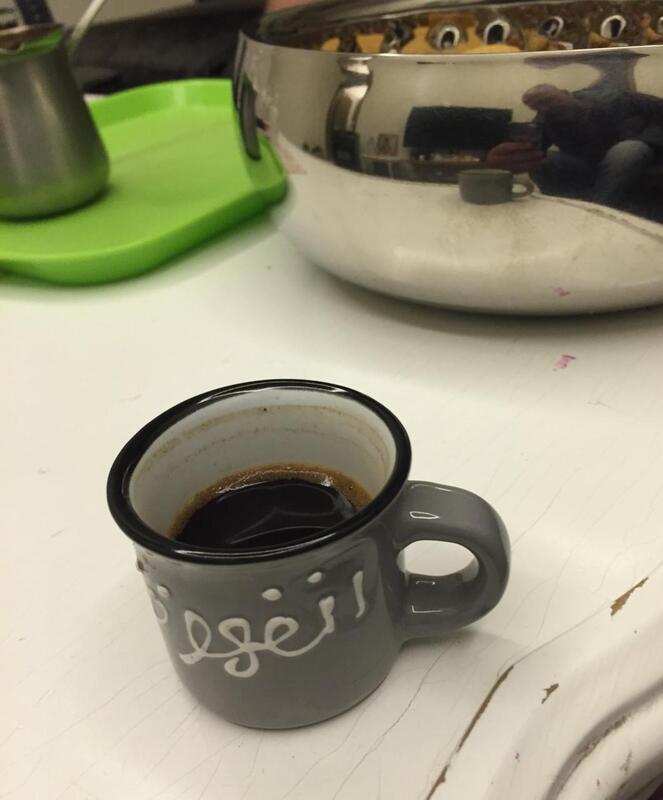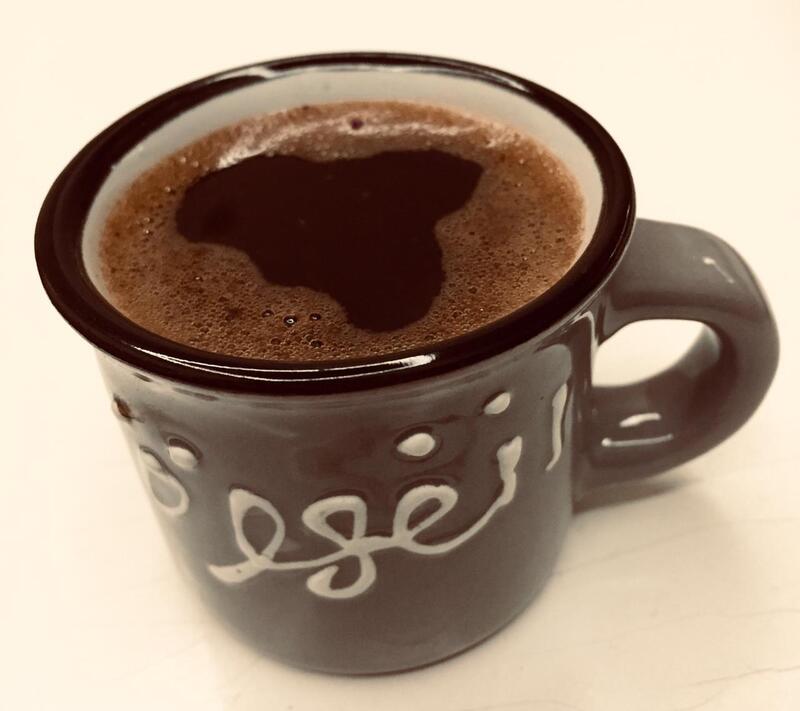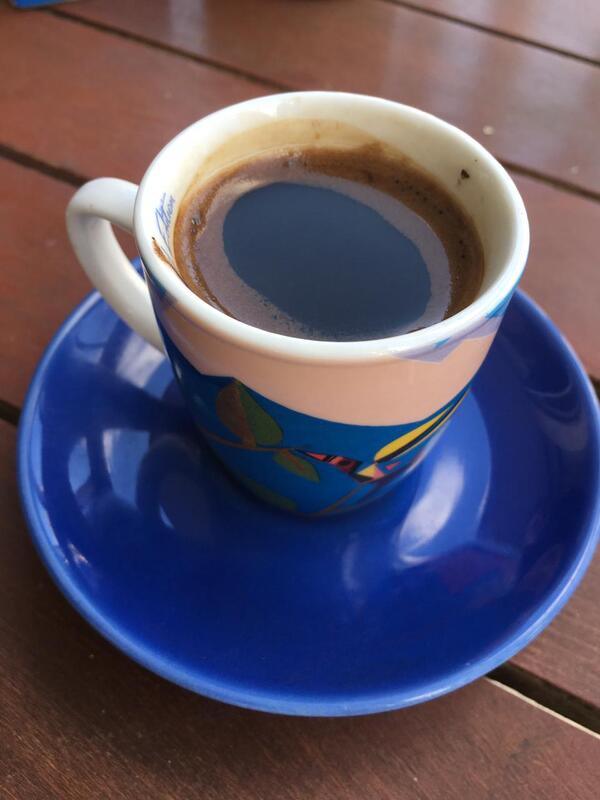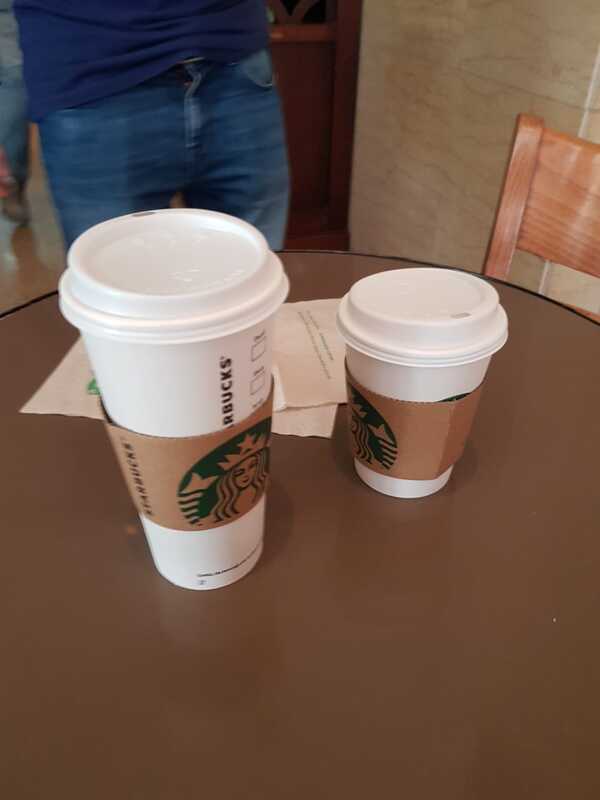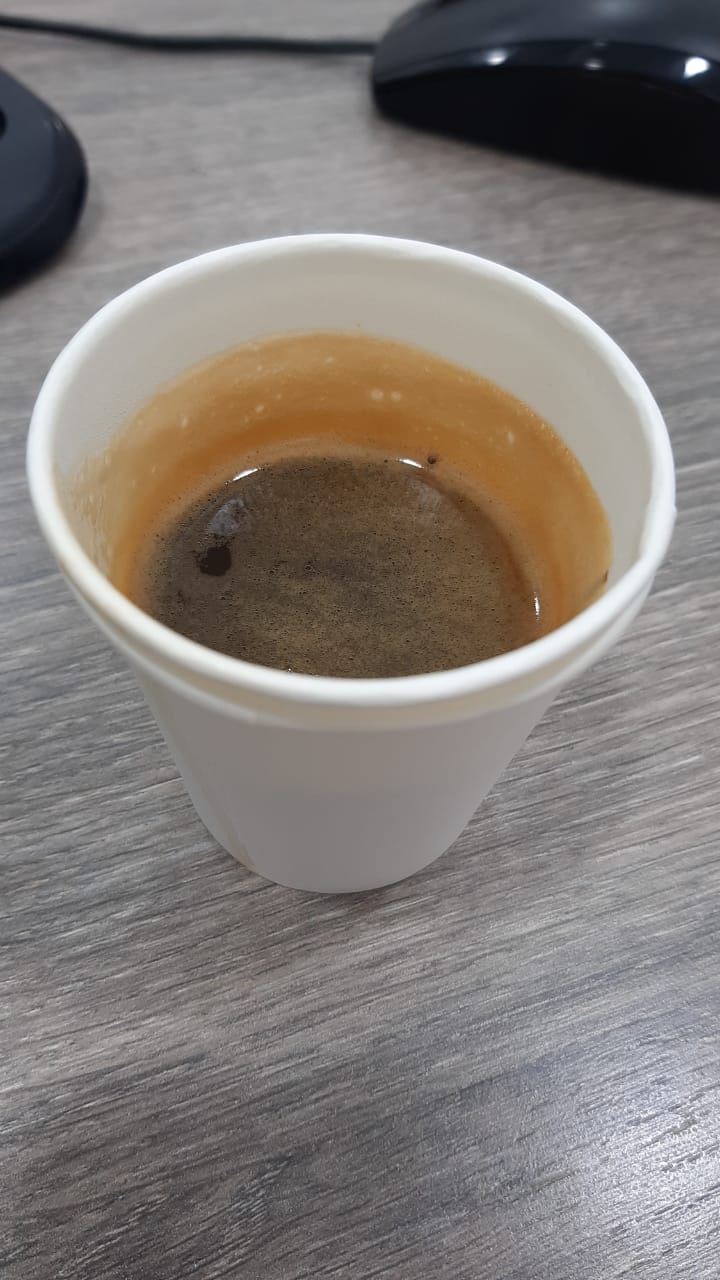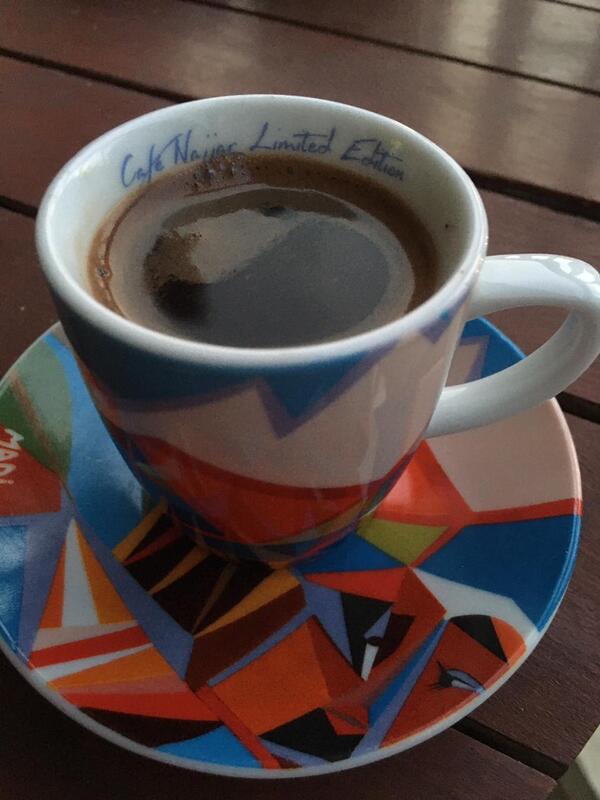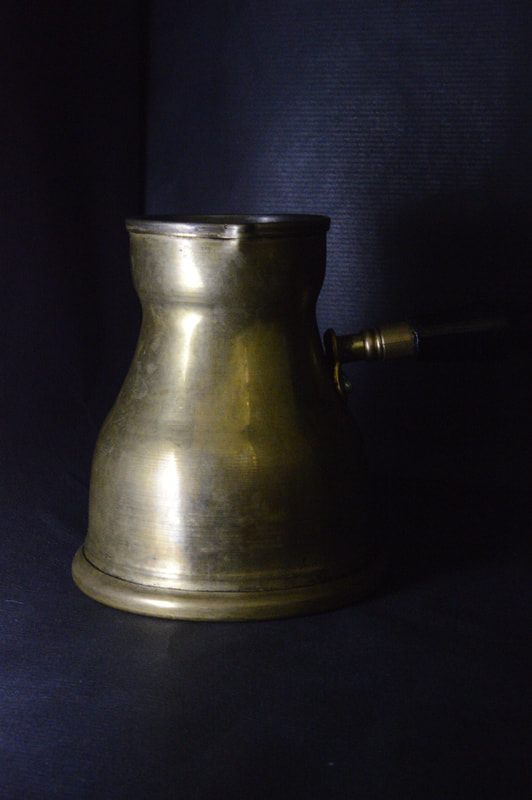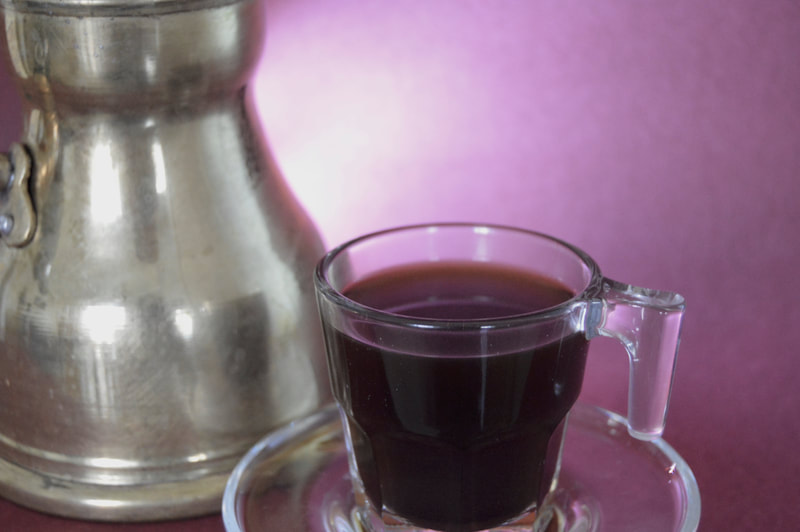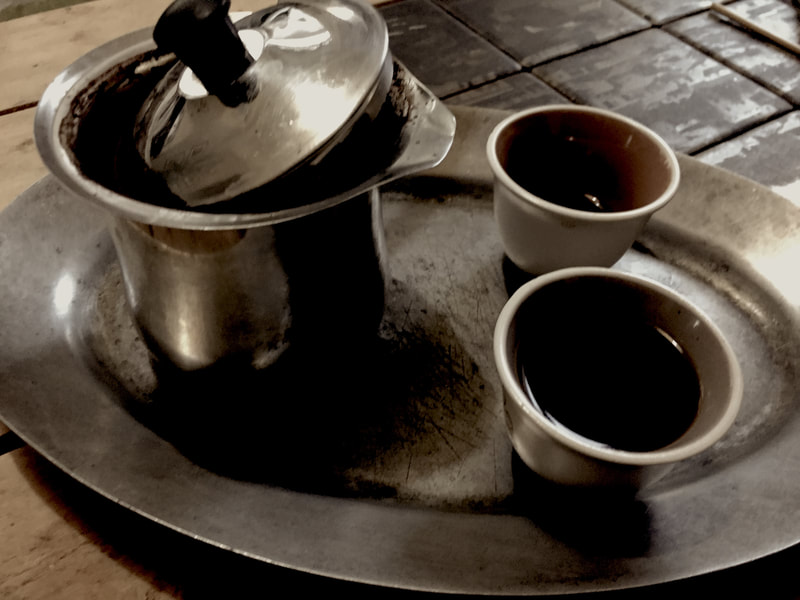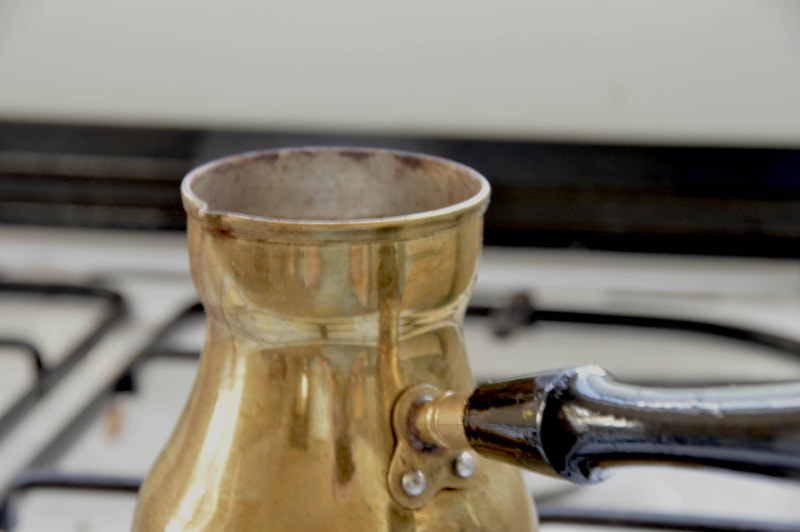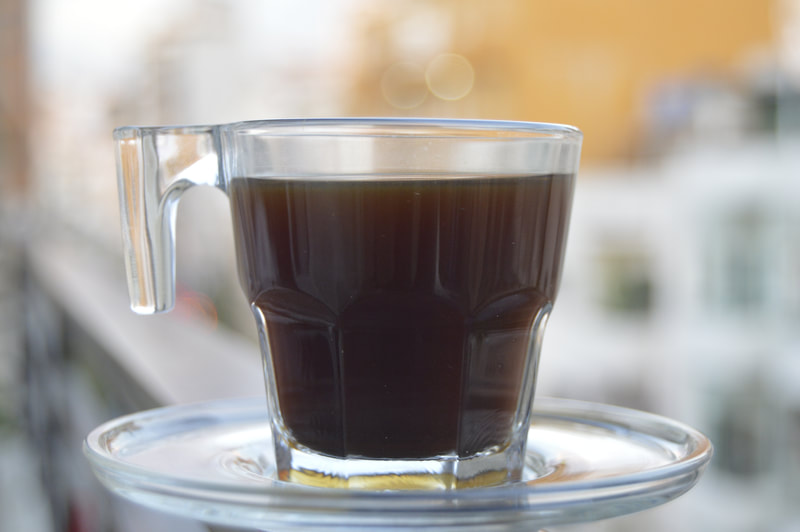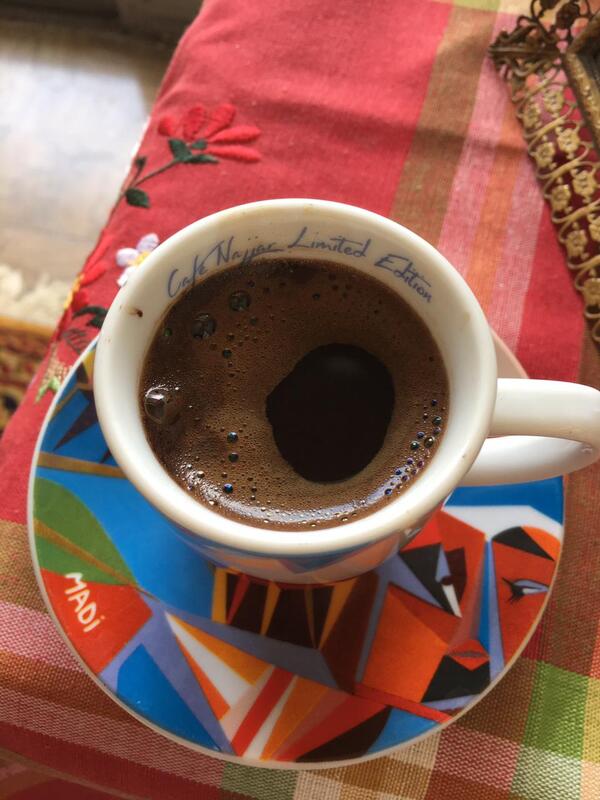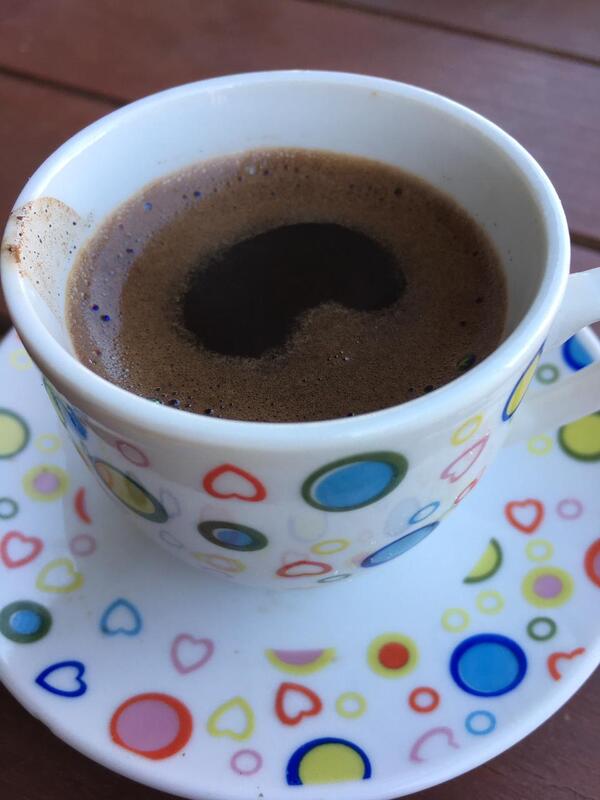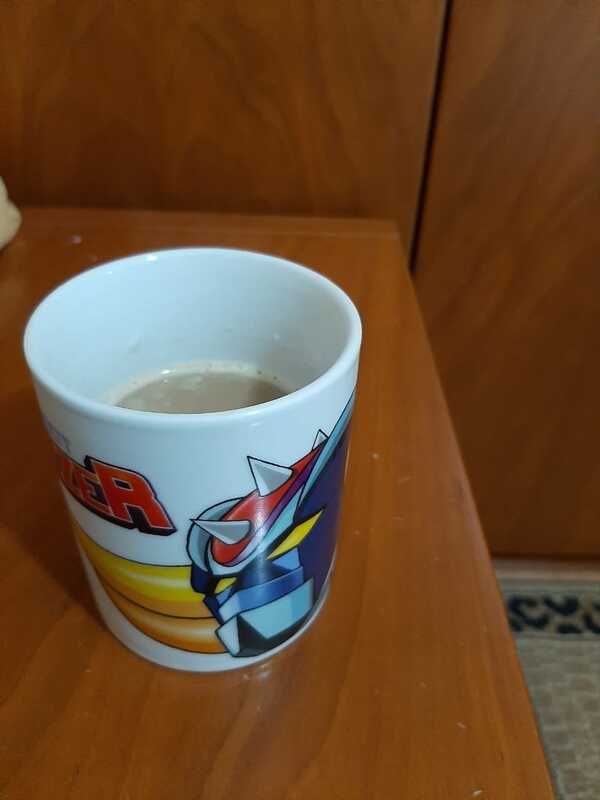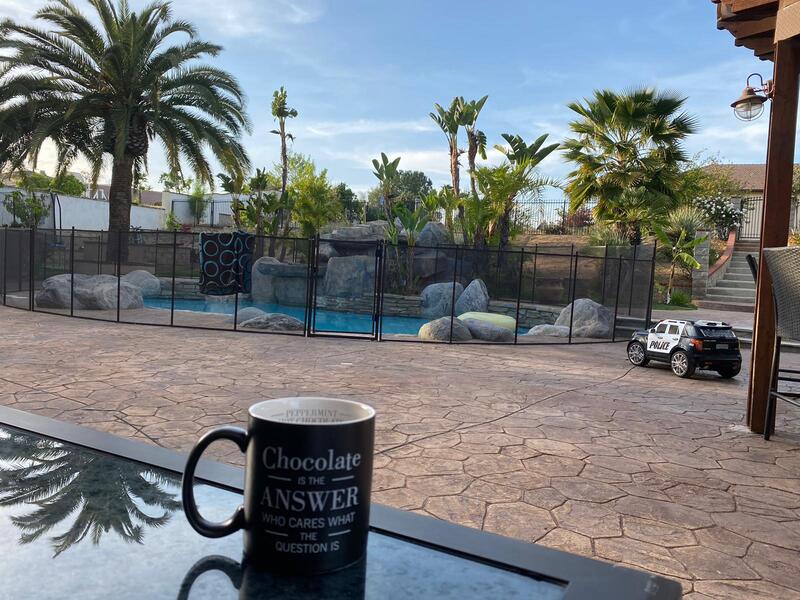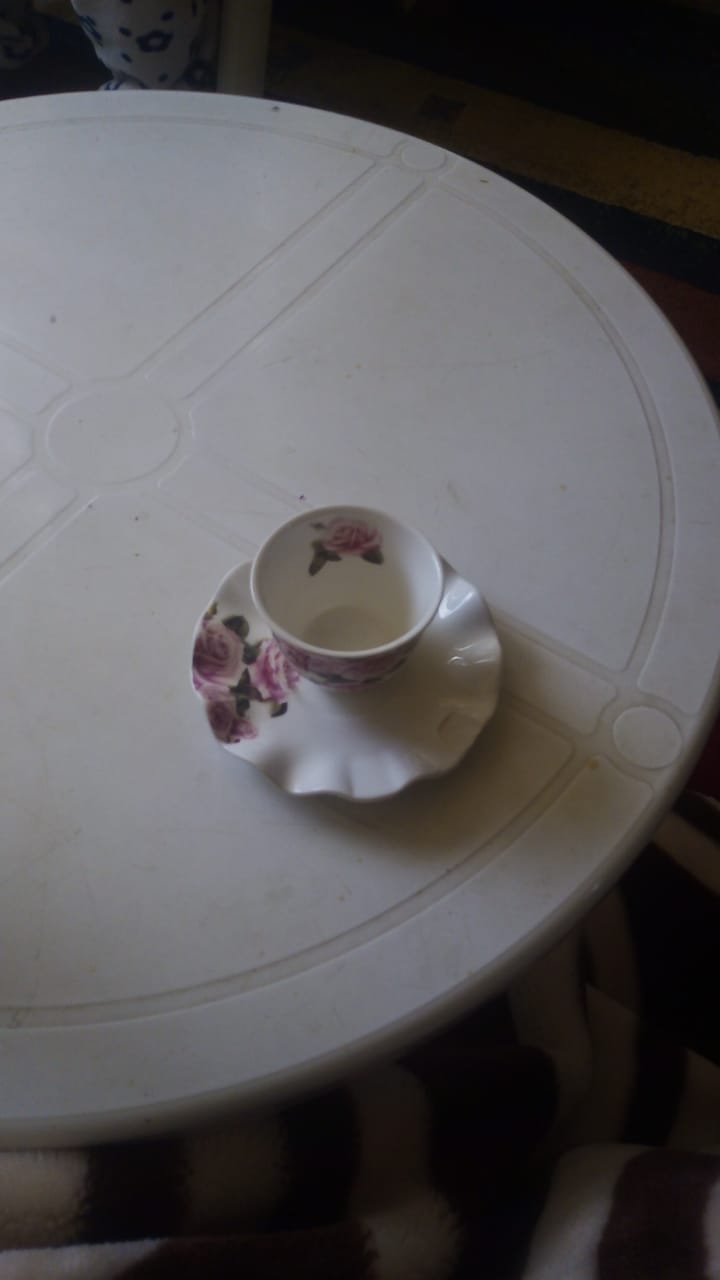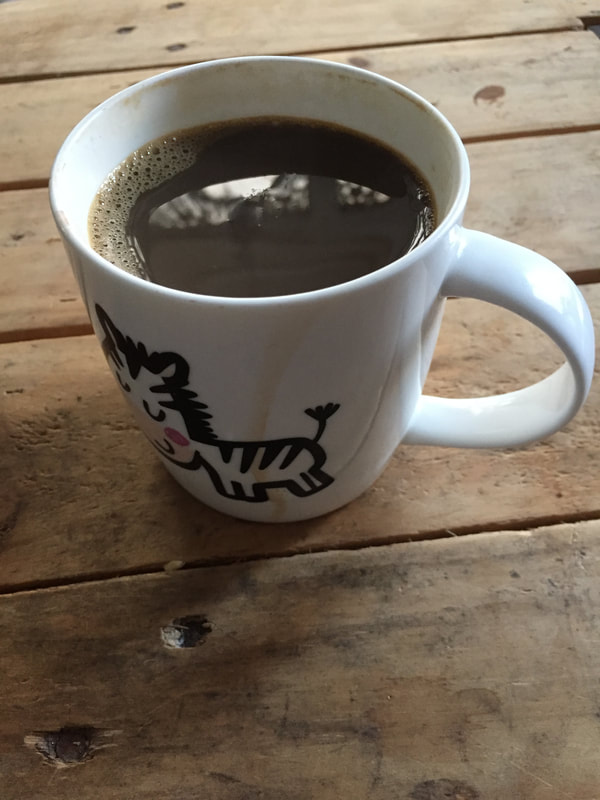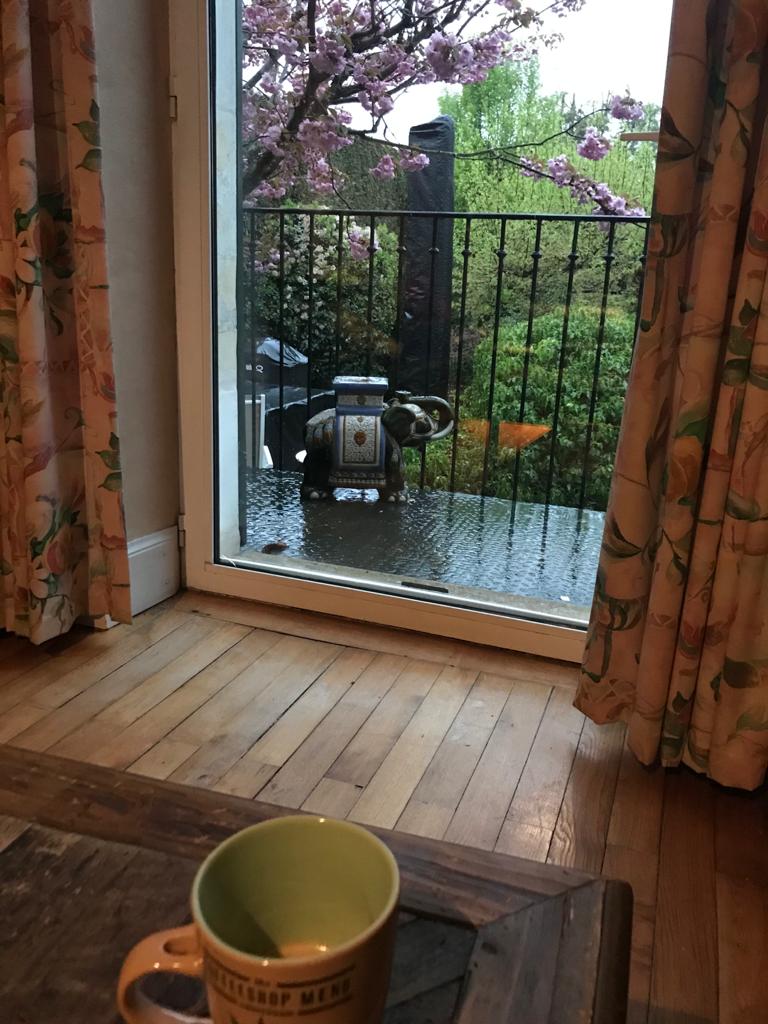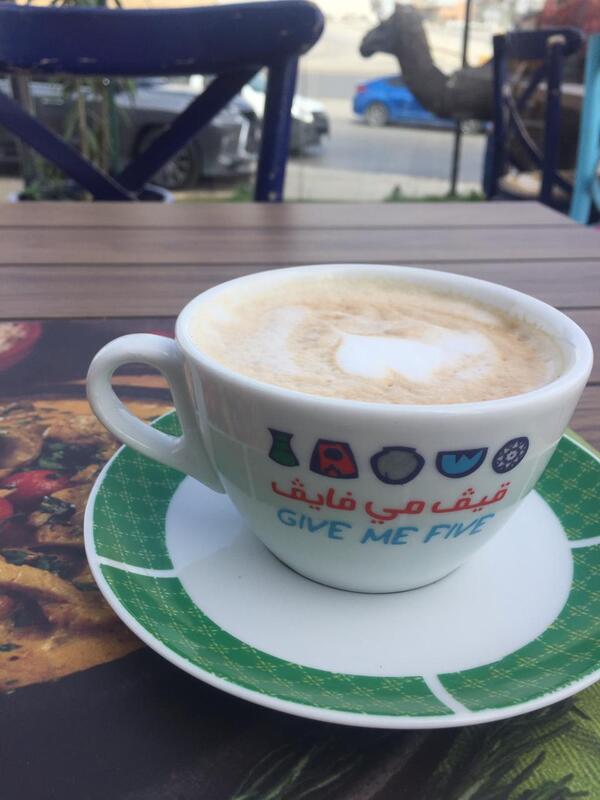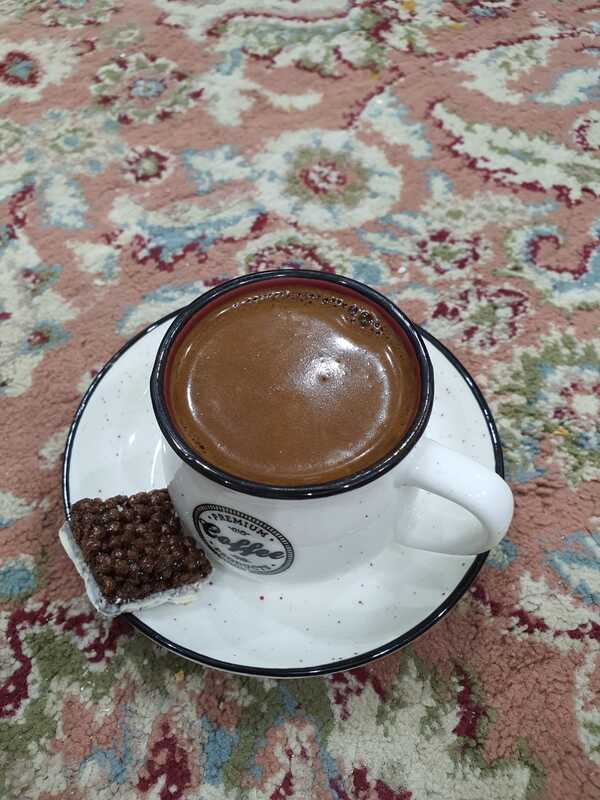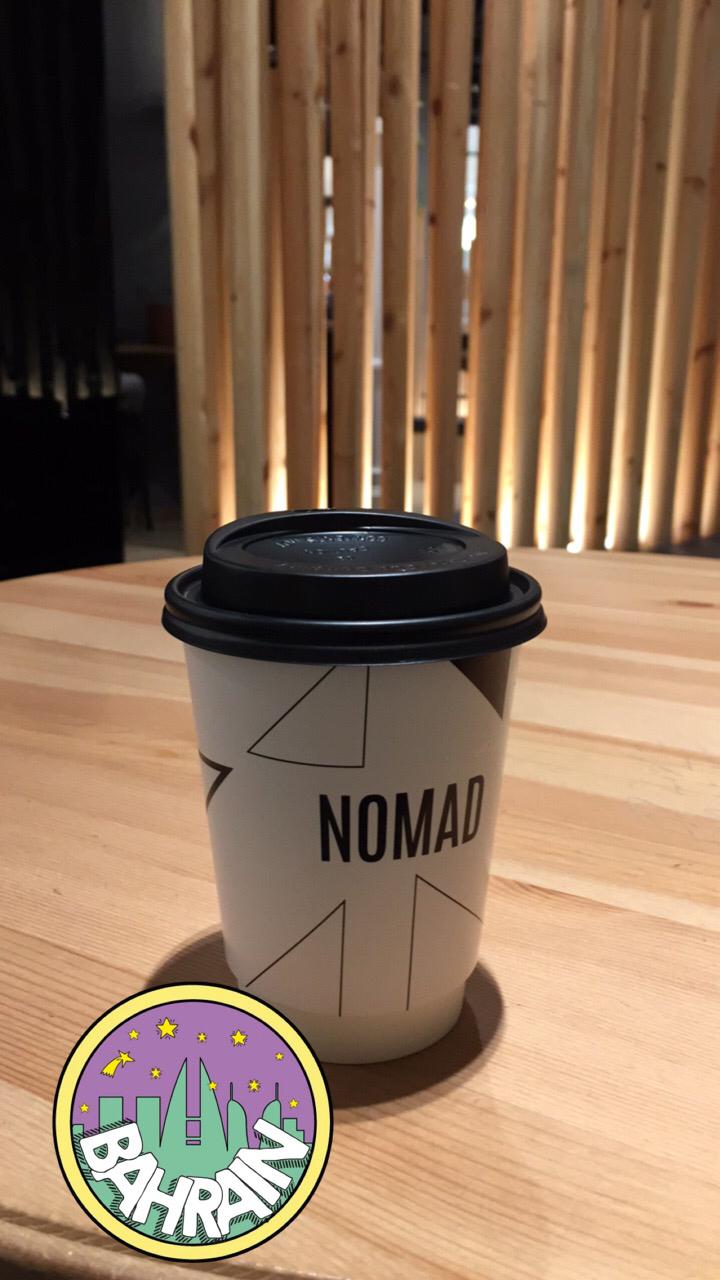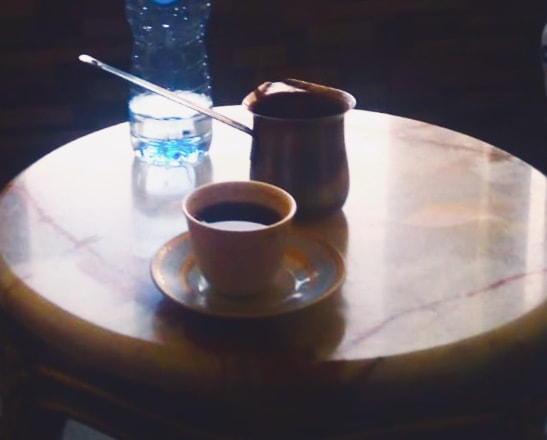Coffee. Timeless. Sensual. That dark, bitter brew which sustains us through the hours. It assails our senses, awakens our brains. The taste on our tongue, the aroma breathed deep. Prisms dance on its surface, the glowing embers of primordial memory.
In Lebanon coffee is part of the fabric of life. From the dawn of day until the waning of the moon it is the symphony for the hours. Drunk slowly, never gulped, words said - or not - between the sips, it transcends time.
In Lebanon coffee is part of the fabric of life. From the dawn of day until the waning of the moon it is the symphony for the hours. Drunk slowly, never gulped, words said - or not - between the sips, it transcends time.
Qahwa began as a film project comprising separate stories linked by coffee. But, over time, it has metamorphosed, been left on the shelf, and now it has reemerged as something quite different. It examines the concept of coffee as the glue of social interaction, of society, of melting boundaries of difference. Everyone, no matter rich or poor, Christian or Muslim, employer or migrant worker, drinks coffee. Coffee is the ultimate social leveler.
The photographs are of actual cups drunk, or being drunk, or in the process of brewing. An ongoing project, they are snapshots of a moment, a moment that never stops. No matter what time of time or night, someone, somewhere is drinking a cup of coffee.
The photographs are of actual cups drunk, or being drunk, or in the process of brewing. An ongoing project, they are snapshots of a moment, a moment that never stops. No matter what time of time or night, someone, somewhere is drinking a cup of coffee.
Qahwa: The Heartbeat of Lebanon
Coffee, throughout history, has transcended its status as a mere beverage and evolved into a symbol of connection, hospitality, and culture in many societies. In the Middle East, particularly in Lebanon, coffee takes on a unique form known as "qahwa." Qahwa, or Lebanese coffee, is more than just a drink; it is an integral part of social interactions, a conduit for hospitality, and a vessel for preserving tradition in a rapidly changing world.
The origins of qahwa are deeply rooted in the traditions of the Levant region, dating back centuries. Its meticulous preparation mirrors the attention given to relationships and interactions. The process of making qahwa involves roasting green coffee beans to perfection, grinding them into a fine powder, and then brewing them in a small pot called a "rakweh." This slow and deliberate process parallels the unhurried conversations that often take place over a cup of qahwa. The act of brewing, often accompanied by the aromatic wafts of cardamom and a touch of rosewater, sets the stage for conversations that are equally rich and infused with depth.
In Lebanese culture, qahwa is a vehicle for hospitality, a cornerstone of the local way of life. Welcoming guests with a cup of qahwa is a cherished tradition that signifies respect and warmth. The host's careful preparation and presentation of the coffee demonstrate their genuine interest in the well-being of their visitors. The act of sharing qahwa fosters a sense of community and belonging, transcending mere pleasantries and delving into meaningful connections. Each cup is an invitation to open up, converse, and forge lasting relationships.
Qahwa also carries within it a historical narrative of a resilient culture. As Lebanon has navigated through various phases of history, its traditions, including qahwa, have been steadfast, preserving the essence of the past. In a world marked by rapid globalization, qahwa serves as a link to ancestral practices and values. Each sip of qahwa is a reminder of the wisdom passed down through generations and an homage to the identity that has remained unshaken in the face of change.
Furthermore, qahwa embodies the art of mindfulness, encouraging individuals to slow down and savor the present moment. As the world becomes increasingly fast-paced, the practice of sitting down with a cup of qahwa creates a pocket of tranquility amidst the chaos. The ritual of qahwa consumption offers a chance for self-reflection and introspection, promoting mental well-being in a manner that extends beyond its warm embrace.
Qahwa transcends its role as a mere beverage and becomes a bridge connecting individuals, cultures, and generations. Its intricate preparation and the rituals surrounding it mirror the intentionality and authenticity of interpersonal relationships. As a symbol of hospitality, qahwa encapsulates the essence of Lebanese culture, drawing people together and fostering connections. In an ever-changing world, it stands as a timeless tradition, reminding us of the importance of preserving heritage and cherishing the moments that matter most.
